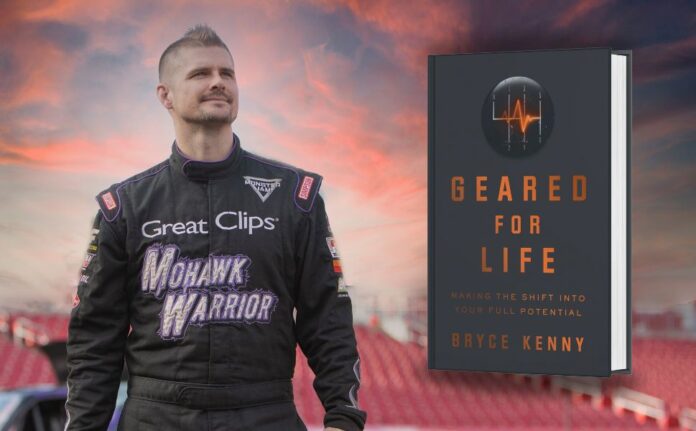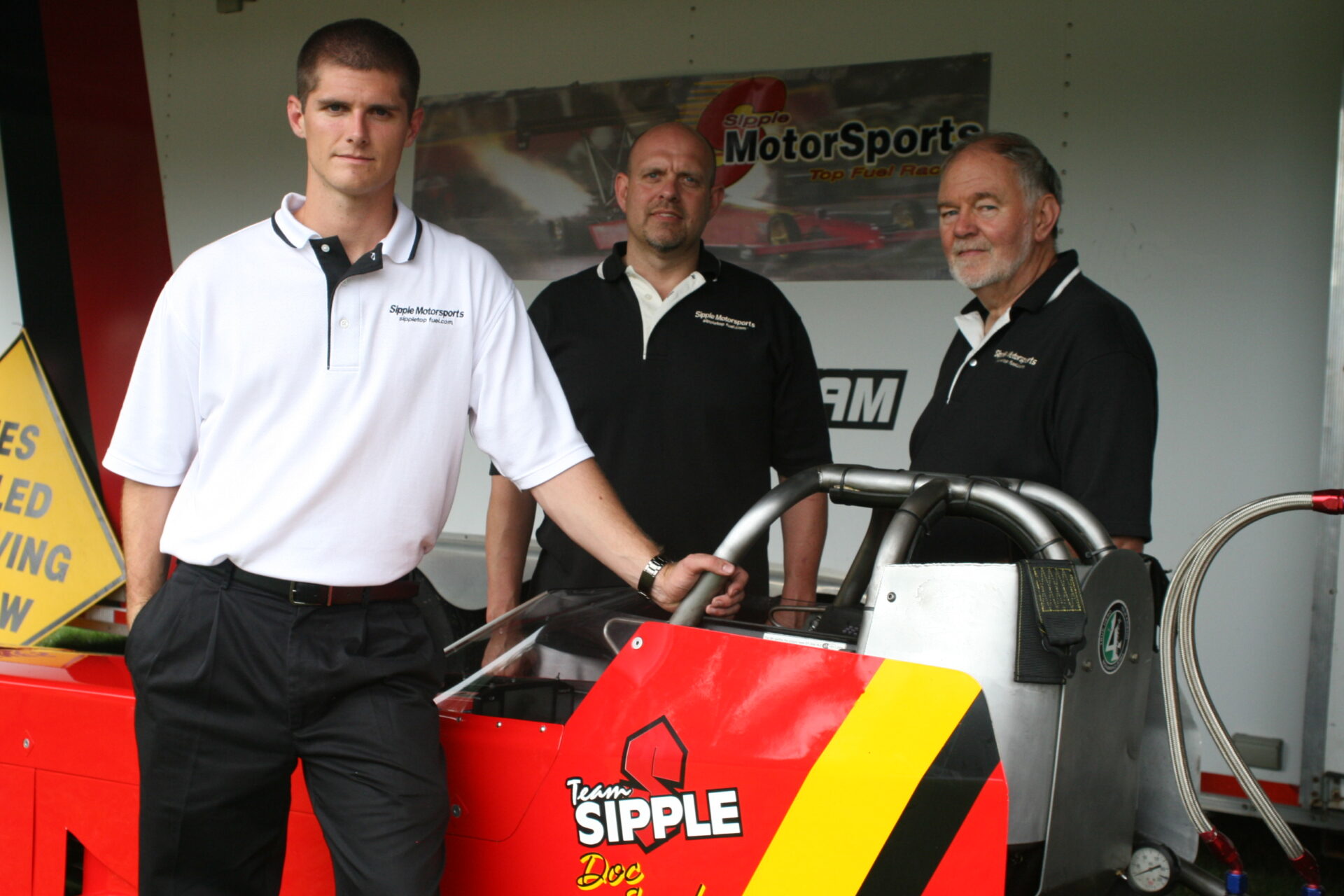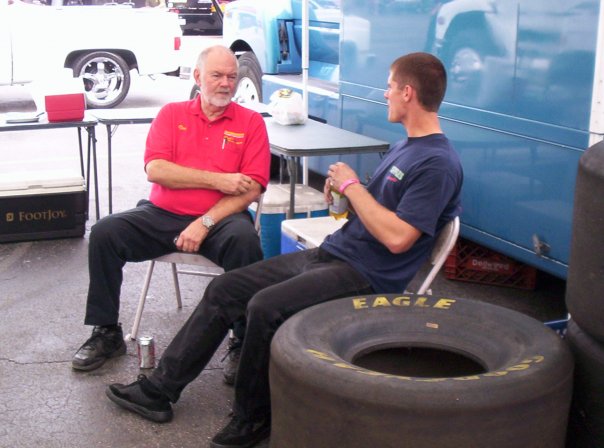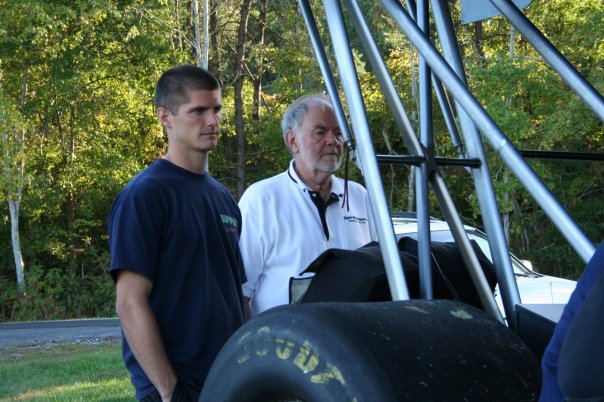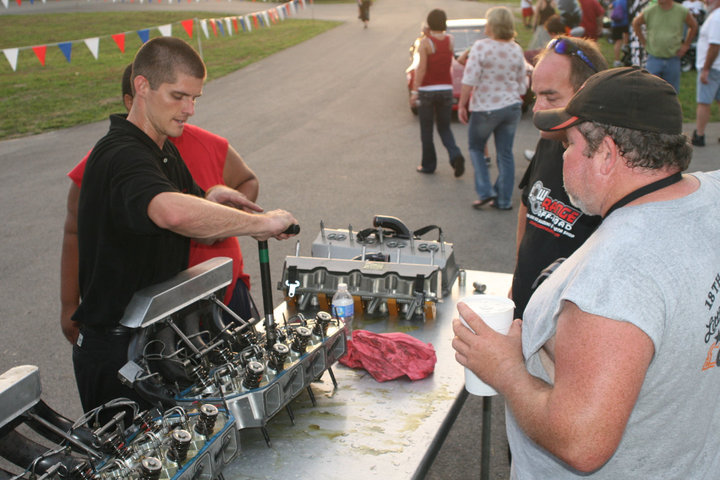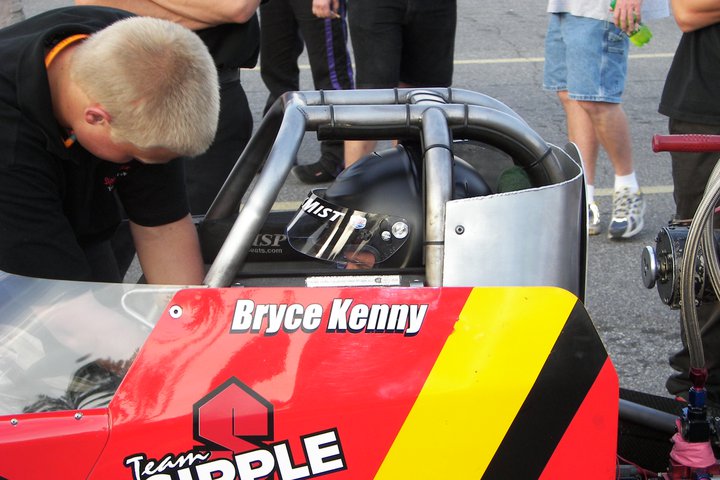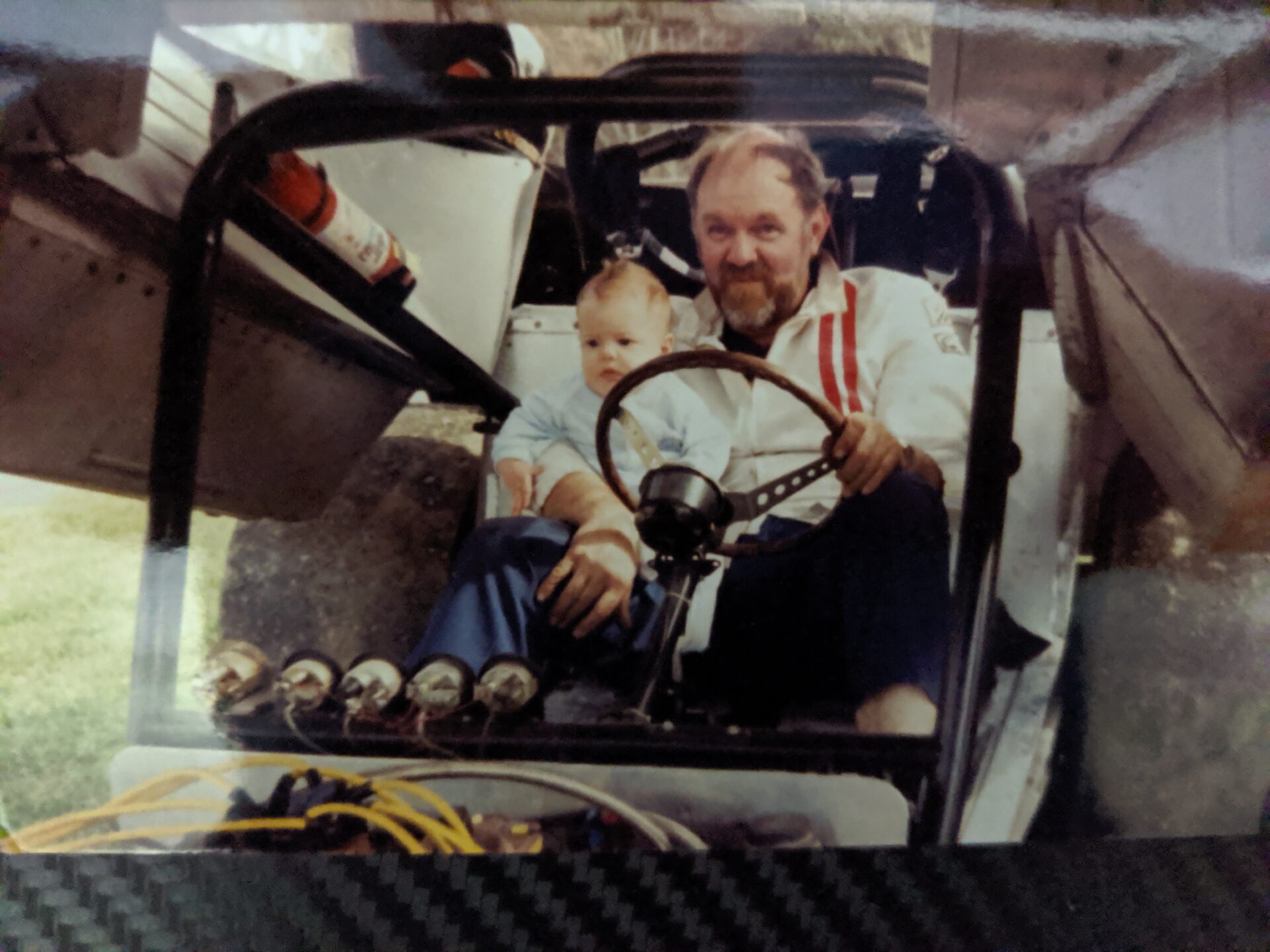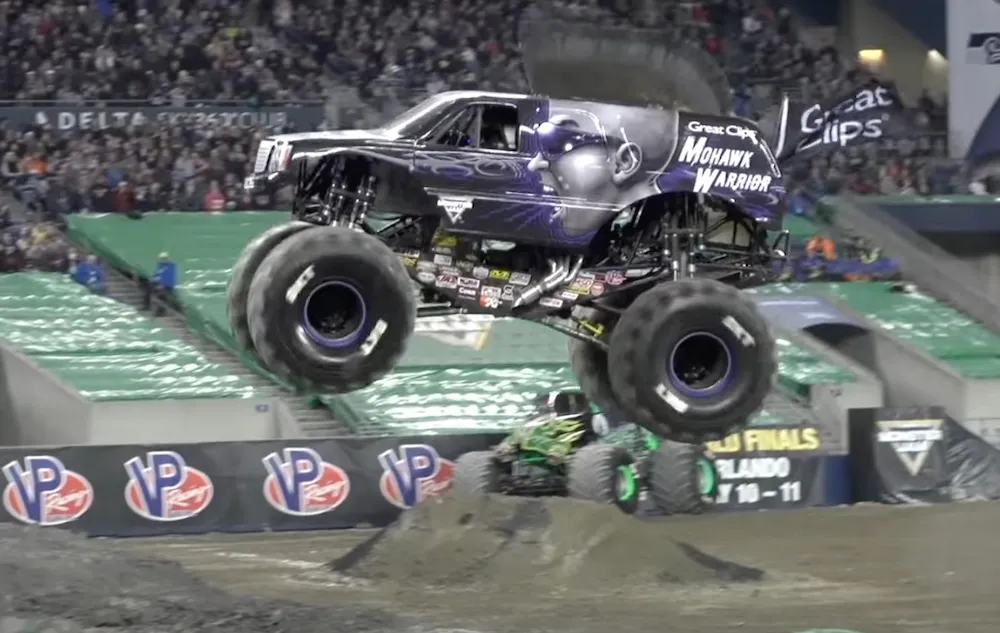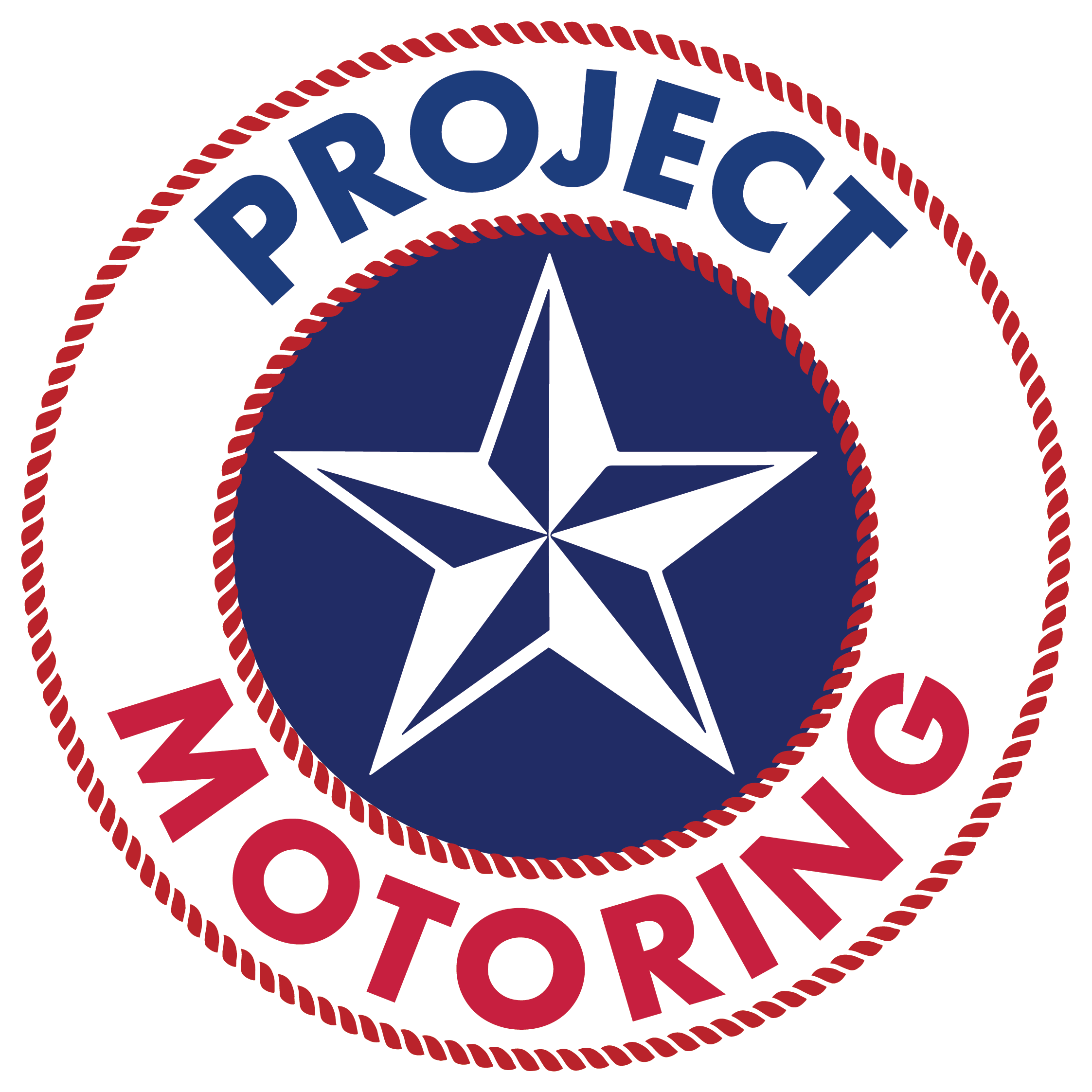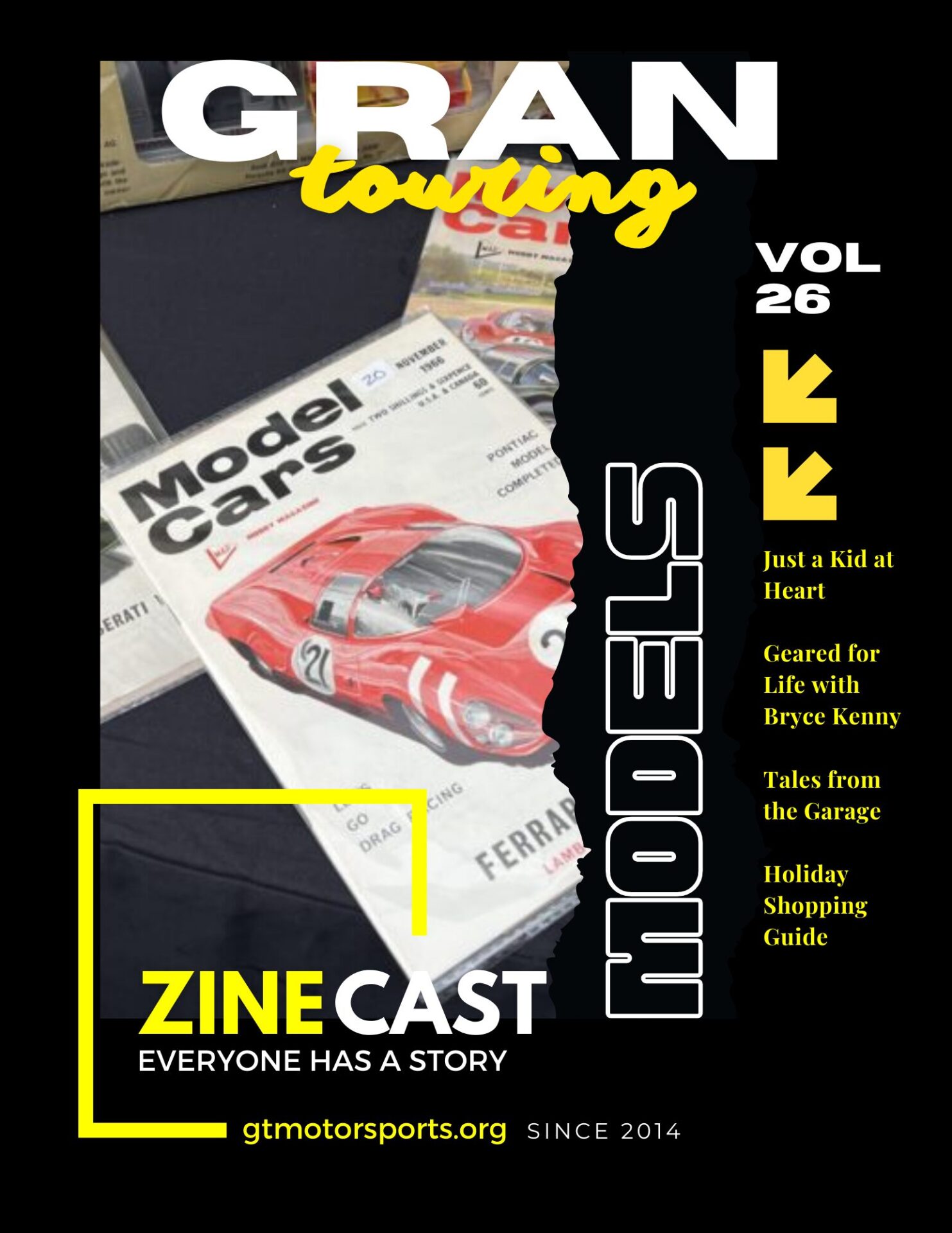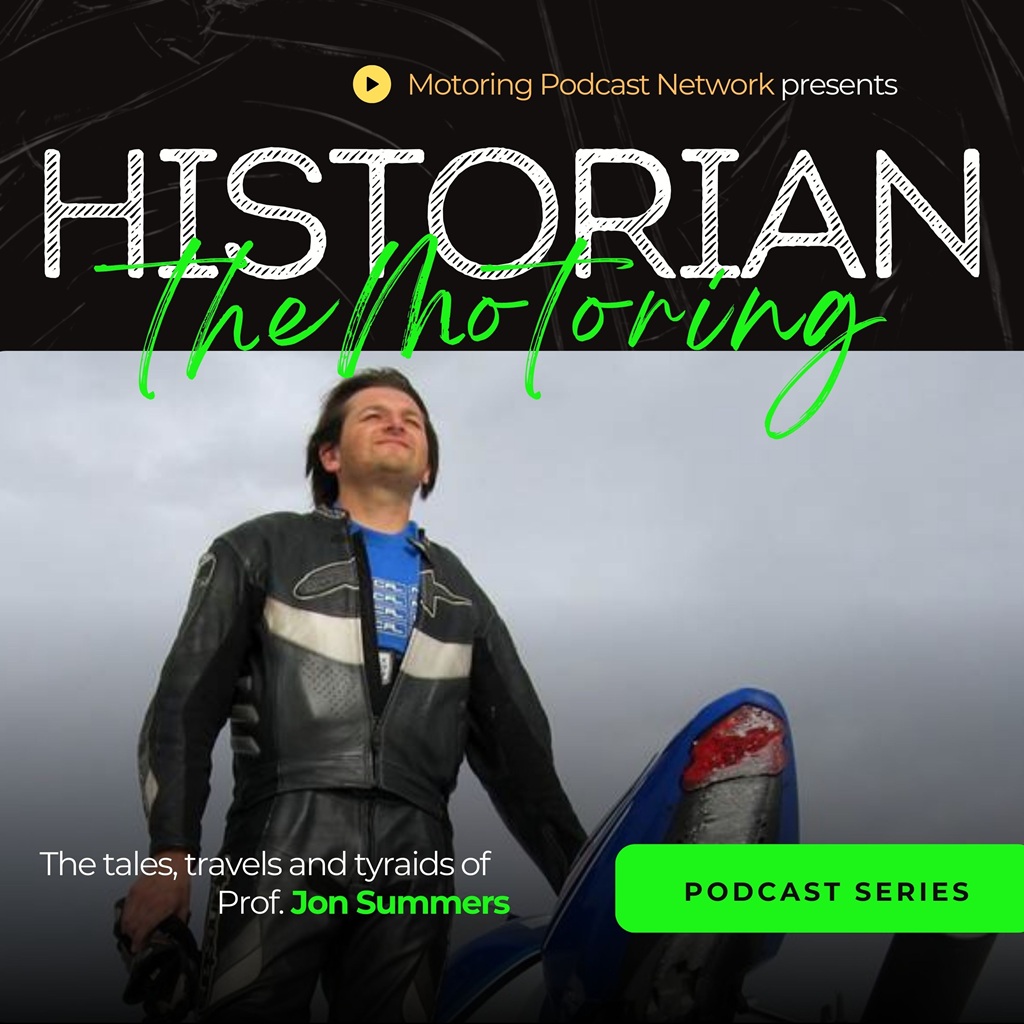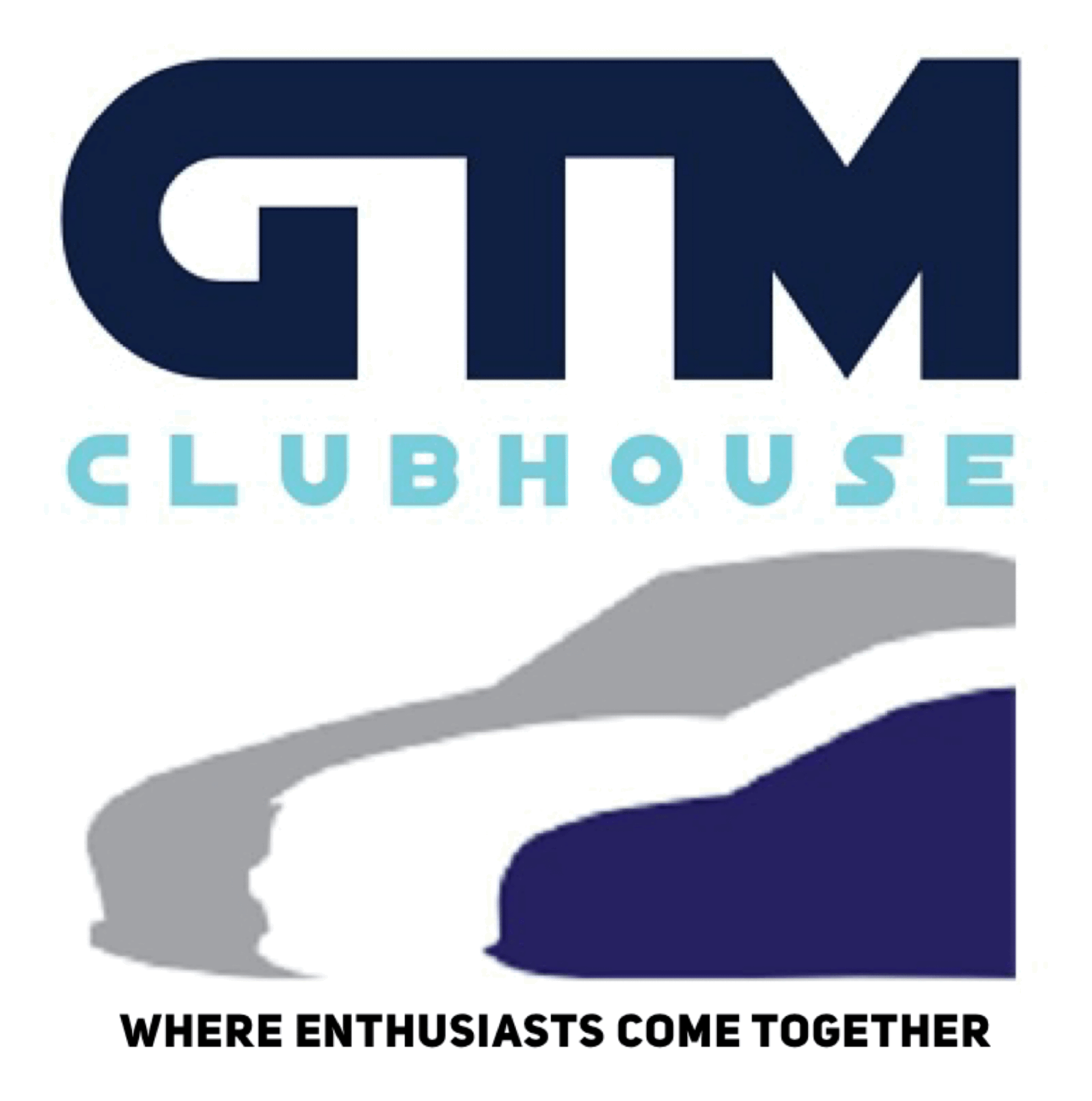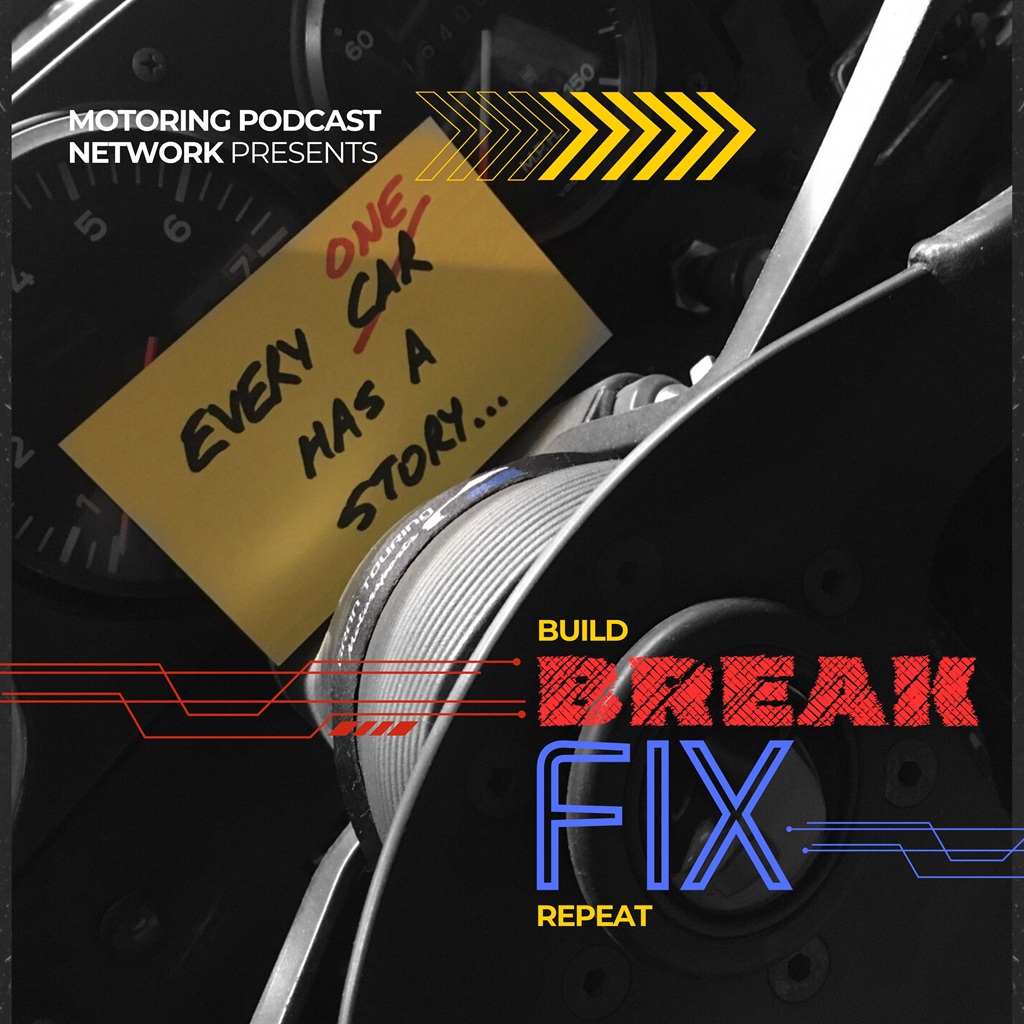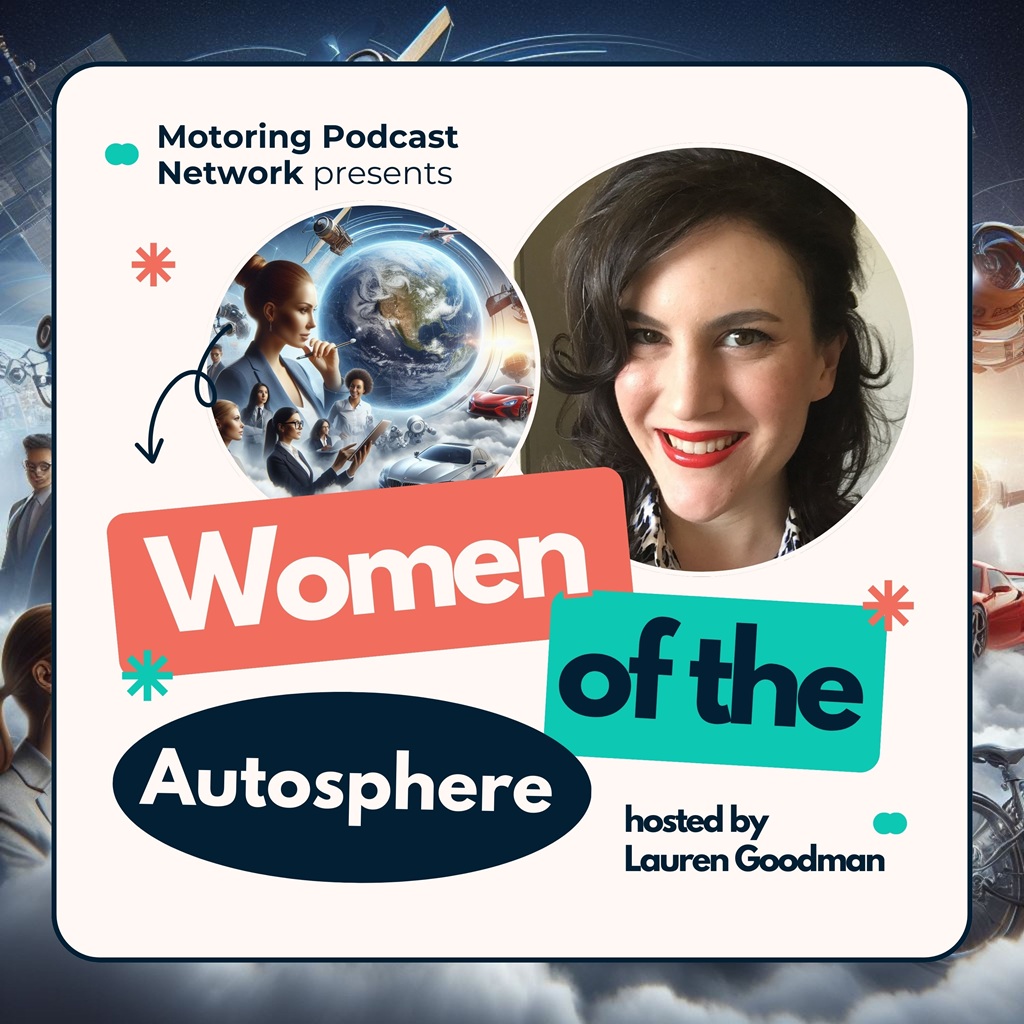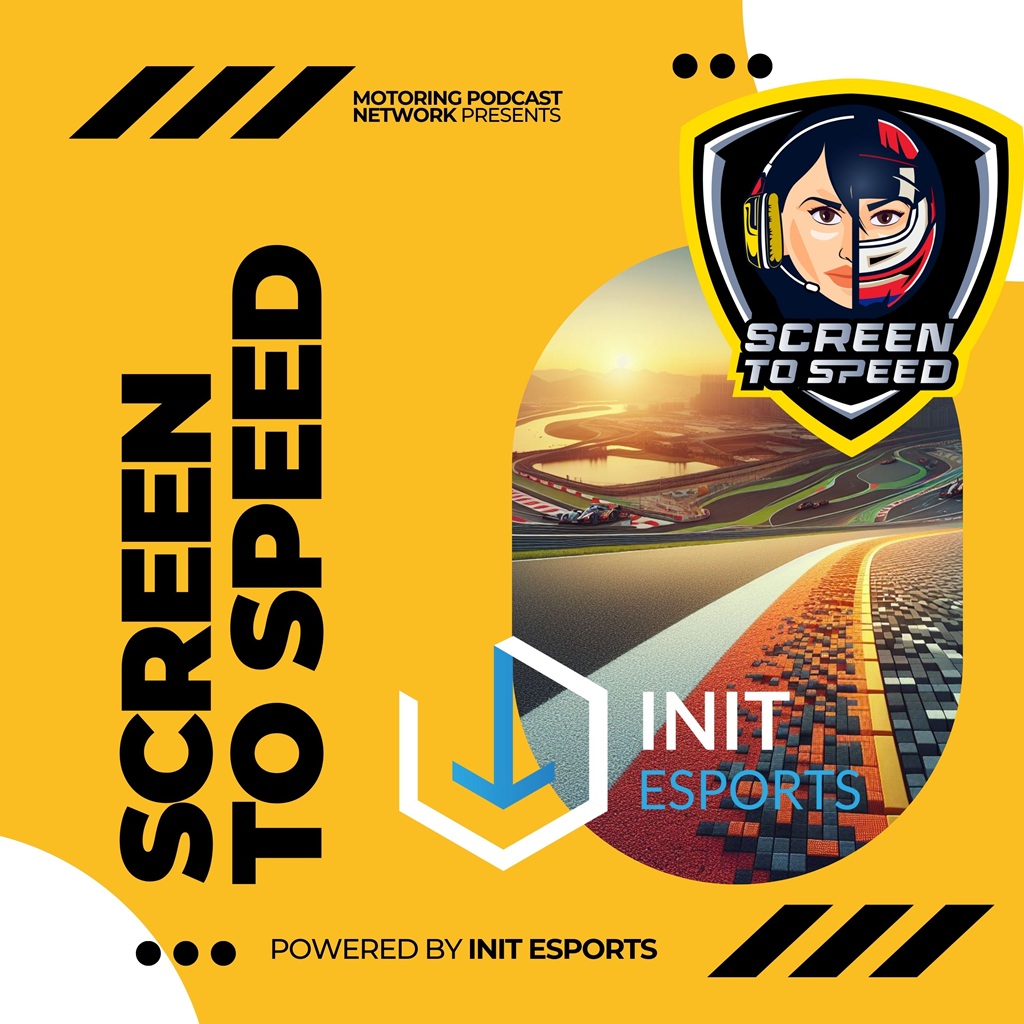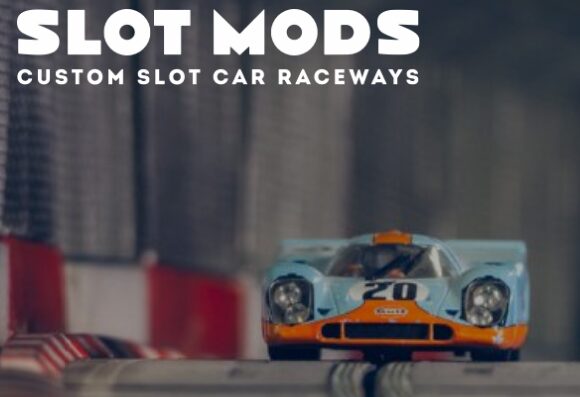Since his 2016 debut, our guest has earned multiple awards including the 2021 Outreach Award for his work helping those in need and making positive contributions to the community. He also set a Guinness World Record in 2021 for the fastest speed in a monster truck and was the first driver to hit triple mile per hour digits in the sport. Bryce Kenny is a professional Monster Jam driver, piloting the Great Clips Mohawk Warrior.
In recent years, Bryce has become an inspirational speaker and travels the country speaking to audiences of all ages about finding the courage to chase your dreams and overcome fear. His newest book, Geared for Life, guides readers to become unstuck in life and shift into the next gear to make a lasting impact on the world. And he’s here with us to share his Road to Success story with you!
Tune in everywhere you stream, download or listen!
 |  |  |
- Spotlight
- Notes
- Transcript
- Highlights
Spotlight
Bryce Kenny - Author of "Geared for Life" for Monster Jam, Great Clips Mohawk Warrior
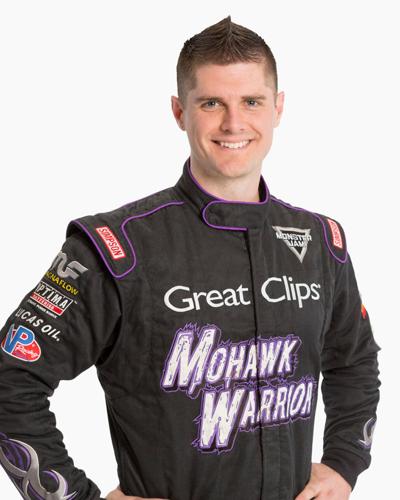
In Bryce’s new book, Geared for Life: Making the Shift Into Your Full Potential he shares stories of winning, losing, and learning to fail forward from the perspective of a professional Monster Truck driver to help others understand that we are so much more than we allow ourselves to believe.
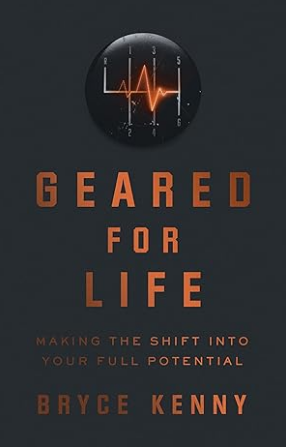
Contact: Bryce Kenny at sarah.westergren@smithpublicity.com | N/A | Visit Online!![]()
![]()
![]()
![]()
![]()
Notes
- Let’s talk about The who/what/where/when/how of Bryce – how did you get into racing, esp. the world of Monster Trucks?
- Let’s unpack the book a bit and talk about some of the higher level ideas. Bucket principle: why capitalizing on moments of momentum can mean the difference between success and failure.
- How to avoid getting “stuck in neutral” when faced with moments of panic and uncertainty.
- Three critical modes for operating through life
- Imposter syndrome: three goals to break the dangerous cycle of self-doubt
- Three tactics to survive burnout in life.
- If a young enthusiast came up to you and said “Why do you race?” (general term: race); what would you say to them? How can we help encourage more young people, especially women to get into Motorsports?
- Let’s tell the audience where folks can pick up a copy of the book? Any signings, personal appearances, or speaking events people should be aware of in 2024?
and much, much more!
Transcript
Crew Chief Brad: [00:00:00] BreakFix podcast is all about capturing the living history of people from all over the autosphere, from wrench turners and racers to artists, authors, designers, and everything in between. Our goal is to inspire a new generation of petrolheads that wonder. How did they get that job or become that person?
The road to success is paved by all of us because everyone has a story.
Crew Chief Eric: Since his 2016 debut, our guest has earned multiple awards, including the 2021 outreach award for his work, helping those in need and making positive contributions to the community. He has also set a Guinness world record in 2021 for the. Fastest speed in a monster truck and was the first driver to hit triple mile per hour digits in the sport.
Bryce Kenny is a professional monster jam driver piloting the great clips Mohawk warrior.
Mountain Man Dan: In recent years, Bryce has become an inspirational speaker and travels the country, [00:01:00] speaking to audiences of all ages by finding the courage to chase your dreams and overcome fear. His newest book. Geared for life, guides readers to become unstuck in life and shift into the next gear to make a lasting impact on the world.
And he’s here with us to share his road to success story with you.
Crew Chief Eric: With that, let’s welcome Bryce to Brake Fix.
Mountain Man Dan: What’s
Bryce Kenny: up, guys? Thanks for having me on. It’s gonna be fun. Absolutely.
Crew Chief Eric: And joining me tonight is one of our regular co hosts on Brake Fix, Mountain Man Dan, who heads up our Mountain View division, all things dirt, off road, truck, and two wheels.
So welcome back to the show, Dan.
Mountain Man Dan: Glad to be here, Bryce. Good to have you on.
Crew Chief Eric: Like all good break, fix stories. There’s always a superhero origin. So where does Bryce’s story start? Tell us about the who, what, when, and where, and how did you get into racing? Especially the world of monster trucks.
Bryce Kenny: I grew up in professional drag racing.
We owned a drag strip in clay city, dragster at eight years old and just fell in love with the sport. My whole life, until I was about [00:02:00] 23, had to do with drag racing. My grandfather, who owned the track, actually sold it when I was 13, and he bought a Top Fuel Dragster. And he was one of those guys, too, by the way.
He started off souping up Oldsmobile cars and all these machines back on abandoned airstrips. And so like, he just kind of was one of those pioneers of the sport. I loved top fuel. I started off just cleaning the car and then I was a wrench fetcher with the guy that was doing the bottom end. And then all of a sudden I was clutch guy on our top fuel car when I was 15 years old.
And so the fact that I’m ripping out 1500 degree clutch plates and stuff like that, and helping with the tune up of it, I mean, I got a crash course in just the mechanical side of horsepower. And so I loved it. I mean, my plan was to become a professional top fuel driver. And then when I was 20 years old, I actually got the chance to get my license.
And so we were running the IHRA circuit. IHRA was always traditionally more of the sportsman focused than the professional focused. And that was back when IHRA ran a lot of top fuel cars. And so we were [00:03:00] trying to make that shift. Over to NHRA and running with those big dogs, you know, the Don Schumacher’s of the world and John forces.
So when I took over the driving and that was the end of 2009, that was my whole goal. And so I spent every waking hour trying to find money, trying to find sponsorships and man, I got my teeth kicked in. You know, I found a lot of small stuff that just kept us going for about three years. But I never could find that big sponsorship.
And that was 2010, our last big recession. And I remember talking on the phone with the owner. He owned a massive construction company. And he said, Bryce, I just laid off 500 people. How am I supposed to give you a dime? Right. And I’m kind of like, well, that’s a good point. At that point, I went to my grandfather who had built that over 40 years.
And I said, man, don’t keep this for me. If it’s to be, it’s up to me kind of a thing. Like sell it, get your money back out of it. I had seven different jobs at that time as well, all funneling into that dream. I was just trying to make it work. And so I just said, look, sell it, man. I’ll go and rebuild it. And if it takes me 40 years to get into it, so be it.
[00:04:00] As soon as we sold the top fuel stuff. So I actually went into a corporate job after that. You can barely find anything about me driving a top fuel car online, because that was even before social media was a big push. Knowing what I know now, gosh, what a missed opportunity, but we just never really made it big.
So I hosted a kid named Morgan Cain. He grew up with Ryan Anderson, who is the Hoonigan’s son of a digger monster jam driver. And so he graduated with Ryan and the Andersons are the Gravedigger family. And so I hosted Morgan on his soccer recruiting trip to Campbell University. Think about a thin thread.
You know, we just kept in touch and I was going, doing Top Fuel stuff. He started driving a truck at that point because the Andersons were like, Hey, you need to come and try this out. And I think it was Stone Crusher. And then a couple other trucks. He found out that we sold all the Top Fuel stuff. And he said, Bryce, you need to talk to Monster Jam.
I was like, man, I don’t know. I had never been to a Monster Jam event up until that point. Still this day, I’ve never been to a NASCAR event. My whole world was drag racing. I had that first conversation with Monster Jam. They said, man, timing’s not really good [00:05:00] for us, but if it ever is. We’ll call you. We all hear that like in a job, we’ll keep your application on file.
And I just kind of laughed it off and said, no big deal. And I went on with my life. I went and got a corporate job and I said, look, I’m going to go grind it out for 40 years, try to create wealth. And then I’ll just become a team owner and get back into top fuel. Well, four years into that plan, Monster Jam actually does call me back.
So four years pass and I remember that voicemail, just like I got it yesterday. And Hey, Bryce, Kenny, this is so and so with Feld Motorsports interested to see if you’d like to come up to monster jam university and drive a monster jam truck. Give me a call back. And so like, I remember thinking monster jam university has got to be some kind of a prank.
You know, I didn’t know it was an actual college per se. I remember thinking, how much is this going to cost me? Because remember, I was dumping so much money into that top fuel dream, keeping it alive. And I just didn’t know if I could do that again. And they were kind of got frustrated there. They said, no, I mean, we got all the equipment and stuff like that up in Paxton, Illinois.
I remember thinking, so just like a flight and a hotel, man, a thousand bucks, I might actually [00:06:00] do this. No, we will buy you a flight and a hotel. Can you just get off of work and be available to come to Paxton, Illinois and test in a truck? I’m like. Well, heck yeah, I can do that, right? I mean, who would say no to that?
And I genuinely, I didn’t know that anything would come of it. I just thought in 10 years from that point, I’d be in some Buffalo Wild Wings somewhere, Monster Jam would come up on TV, and I’d get to nudge a buddy and go, Dude, I drove one of those things 10 years ago. It was a whirlwind, man. That was eight years ago, and here I am, and it’s my full time job.
And by the way, they did give me a diploma. From Monster Jam. I thought that was a little bit much, like, come on guys. I think I left it in the hotel room as well. And now I’ve been hitting myself over the head because I mentioned it so much. It would be kind of cool to like pull up my diploma from Monster Jam University, but real place, real diplomas.
And it was a literal crash course in learning how to drive one of these 12, 000 pound machines.
Mountain Man Dan: So what you’re saying is the housekeeper that picked up that diploma, they’ve got something worth money right now. They don’t know it.
Bryce Kenny: And trust me, they probably had no [00:07:00] assumption that it would ever be worth anything.
So I’m sure it found the trash, but maybe man, maybe it’s like the most secretive piece of history of Bryce. Kenny’s life out there somewhere.
Crew Chief Eric: Holy cow. What a transition you go from driving really fast in a straight line for not a lot of time to. Behind the wheel of a 12, 000 pound truck. How does that work exactly?
We talk all the time on this show about how one discipline can influence another. And if you start in go karting and go to autocross, then you can be a star club racer and all those kinds of things. Talk about diametrically opposed.
Bryce Kenny: Yes.
Crew Chief Eric: What was that transition like? And what was it like learning to drive one of these trucks?
Bryce Kenny: To your point, you know, when you’re driving something with 10, 000 horsepower, like a top fuel car, flying through the air is a really bad day. You know, when you’re driving something that weighs 12, 000 pounds in a monster jam truck, flying through the air is just another day at the office. And so are the skillsets that I had in top fuel relatable to monster trucks?
No, they’re really not, except for the fact that I understand the application of horsepower. You know, whether you’re on asphalt. Or whether you’re on dirt, that’s [00:08:00] what the sport is all about. It’s trying to apply horsepower in the most effective way. I’ve never been intimidated by any situation in a 12, 000 pound truck because I’ve always felt safer, but I’m only having to deal with 1500 That’s kind of bizarre to say, but it’s not easier.
It’s actually been a lot harder because. I am the powertrain guy. I know what that supercharger on a top fuel car was doing. And I’ve pulled cylinder heads in a thrash on top fuel car. I know what that motor is doing and when it’s happy and not happy, I can come over the radio with my crew guy in monster jam and go, man, we’re a couple degrees off here.
Can you go and just put a timing light on it? And a lot of times I’m right, or I can just pinpoint things in the powertrain. Now that’s all great, but monster jam, honestly. Is not really about the powertrain. I mean, it’s all very basic power. You’re talking 540 big block Chevy motors, Merlin blocks. They’re running on methanol, the technology of the power we make.
I mean, we were doing that in 2003 in alcohol, dragsters and [00:09:00] top alcohol, funny cars. I mean, it’s kind of dated technology when it comes to power. But the thing that still I’m learning every time I go out there, it is the drive train. It’s the way that these knuckles are built. It’s the shock systems, man.
It took me three years just to realize that I shouldn’t feel like I was in a car crash every weekend. I mean, it would take me three days just to feel normal again. I remember talking to Morgan, who was the guy from Campbell. He was like, why are you sore? I’m like, I don’t, I don’t know. Aren’t you sore after each.
Monster Jam week. And he’s like, no, I’m never sore when you’re never sore. And he was doing twice as much as I was doing in terms of bigger air and crazier stunts and having bigger crashes and stuff. And so I was like, okay, something’s wrong. But going back to the drive train point I’m trying to make, it’s almost as if I would get over the radio after a big jump or some move the truck made, and I’d have to say, Hey man, that.
Front left corner feels a little crunchy. Like that’s about as good of information as I was able to give, you know, I wasn’t able to talk about the king pins or planetaries or anything like that. And still, I mean, I’m learning that stuff every weekend, but I could show them what bolt might be loose on the [00:10:00] motor just from the way it felt in the way.
Uh, you know, I could hear it. So. There is a lot of transfers when it comes to power drive trains. Uh, there’s been a whole nother story for me though, to learn
Mountain Man Dan: the learning process was basically like you were a cold trickle calling into the pit and talking about what’s going on. Right. Come on down here
Crew Chief Eric: and get some ice cream.
Bryce Kenny: I’ve never thought that, but I think you’re right, man. May. Oh man. I hate to be cold trickle. But he got the girls. He got the big sponsors though, didn’t he? I don’t know. That’s true. Yeah.
Crew Chief Eric: So going back to the education a little bit from the outside, when we look at the truck midair doing flips, doing jumps, we go, Ooh, and the crowd goes wild.
How many of those? super easy from inside the cockpit and which ones are actually really, really difficult that we wouldn’t be able to tell from the outside.
Bryce Kenny: Everyone loves the backflips. If you hit our backflip container with some momentum and a little bit of power, it’s easy to get the truck to rotate.
My thing is I’ve watched a guy break his neck on a backflip from under rotating. I’ve under rotated. That is the most dangerous situation is under [00:11:00] rotating. So I have a tendency to over rotate because as much as I plan to do it, When I hit that container and it starts rotating, I have a very heavy right foot because I’d much rather over rotate than under.
So getting it to rotate is actually quite easy. What people don’t actually realize is the more the sport has evolved, we’re doing more technical moves like nose wheelies and you know, stoppies stuff, you know, this started in a super cross and we’re doing that in a 12, 000 pound truck. And it’s hard to learn how to do those.
Now, once you learn how to do them, they’re easy because you have to take the truck further than you think it needs to go. Meaning you have to take it almost past zero in a way. Like if you’re trying to get the truck to stand up on his nose, you know, you have to almost feel like you’re about to fall forward on the truck before you feel that balance point.
That is what throws a lot of Monster Jam drivers off by doing some of the technical moves like that. But that’s honestly pretty easy. I think that what probably coordination wise that. Takes a lot of drivers get used to is just dealing with the rear steer mechanism. You know, we steer the back tire separately from the front.
I didn’t have trouble with it. It was kind of fun because it was almost like you’re driving with your butt. [00:12:00] In a big long dragster. I was used to that part anyway, because it’s like, I was kind of always having to feel what the back of the dragster was doing with my butt anyway. So that part didn’t, but I think a lot of drivers do struggle with that, but I think people think the back flips are incredible to watch and think that it’s scary and they think that it’s probably difficult to do is probably one of the easiest moves to make.
Even though it’s not always the easiest one to land on all four, but it’s definitely easy to get the truck to actually rotate upside down.
Mountain Man Dan: Probably close to 20 years ago. I remember one of the first backflips done in motocross, and that was a phenomenal feat. It’s one of those things where being someone who’s rode motocross and everything, the bike is a lot smaller and you can feel it.
How is being in the truck compared to like, if you want to bike, is it a major difference or is it similar to where you feel everything that’s going on?
Bryce Kenny: We’ve learned a lot from dirt bikes. You know, those are the guys that change the pitch. All of a sudden you tap the brakes to kind of get it to nose down.
We do the same things in these 12, 000 pound trucks. All of a sudden I hit a jump and I’m nose high. We just tap the brake a little bit to bring the nose down to try to flat land it. And vice [00:13:00] versa, you know, if the nose is lower and we want to bring it up, you know, you just get on the throttle and get the big tires going.
It’s all a matter of physics. Tires that we have are 66 inches tall, weigh a 600 pounds each. When you control the movement of weight distribution, it always affects what the machine’s going to do. And so there’s a ton that we’ve learned and adopted, even though it’s definitely gonna be easier for the dirt bike guys, motocross guys to control the machine, cause it’s lighter.
At the end of the day, they still do. If anyone just like what you’re kind of alluding to, if you know the sport, you watch them work that machine. It’s not just like that, you know, machines, not light, especially when you’re attached to it and you’re hanging off the thing, you got to get the bike working with you.
We’re strapped into this machines. That’s our only option. We can’t throw our body one way or do anything. We can barely breathe inside that truck because of how tight we are. We get all the best safety equipment because. We crash all the time, Simpson race equipment. They love coming to us because NASCAR can have a bad wreck and they’ll collect a lot of data, but that might be once a weekend or [00:14:00] once every other couple of weekends, they can come to us, man.
We can try, we can put accelerometers on different parts of the truck and different parts of us and Simpson can go in there and evolve and innovate the next best piece of safety equipment. So actually we get the best equipment out there and that gives us a lot of confidence. Hanging off those bikes.
Like the motocross guys do, I don’t know how they do it. I just know a lot of them end up in monster jam. Cause that’s the model of a lot of the older drivers that came from motocross are like with age comes a cage and they jump in one of these big monster trucks with us.
Mountain Man Dan: That’s how that’s all the time.
When we’re out on track being in a car, I’ve got that extra layer of confidence being inside of something compared to be honest
Bryce Kenny: with you, if you can ride a bike, you can absolutely, you you’d be like a duck to water in a. 12, 000 pound truck.
Crew Chief Eric: Well, I think that’s a great opportunity to take a pit stop and ask Bryce a little bit more of an opinion question.
So Bryce, you know, normally we would ask a guest on our show, you know, what’s the sexiest car of all time and things like that. But I think in this case, we need to retool that question. Putting your current truck aside, what’s the best [00:15:00] monster truck of all time?
Bryce Kenny: Oh, it’s Grave Digger. And he’s my nemesis. I love the Anderson boys.
I’ve been on the same tour with Adam Anderson. I call him the Prince of Monster Jam. He’s the son of Dennis. Dennis is the one that started Grave Digger. I am just so appreciative of them and what they’ve done and being pioneers. It’s out of pure respect that I call them my arch nemesis. They are beyond legendary.
I mean, when you think about what the brand has done. The brand has not only changed Monster Jam, but the brand has made a massive influence on motorsports as a whole. In a lot of ways, I think that they are the epitome of combining motorsports and entertainment. The motorsports out there that seem to be dying, and there are motorsports that are dying.
The ones that seem to be dying are the ones that want to live on. Just competition alone. Competition alone will bring some fans. Times are different now. People want to be entertained. And it doesn’t mean that you have to have one or the other. And I think that that’s what the Gravedigger family knows.
Like, Dennis Anderson, he created [00:16:00] freestyle. The freestyle competition. That is Monster Jam. That’s our crowning jewel. It’s our last competition of an event. 120 seconds. Driver gets to go out there and just do whatever we want to do. Right? Destroy the truck. That’s where we’ll backflip it in 45 feet in the air.
That got created out of desperation by Dennis Anderson. It used to just be racing. They would go to a track and they would have crush cars and they would just, wow, you know, two trucks going at a time. If you won everything, you keep going, right? You’d make some money. Dennis went to an event and had no money to get home.
He had no money to get home and he went to the track operator and said, look, I have not sold enough t shirts. to make it home. Let me go out there and for 60, whatever it is, let me just go out there and just be crazy because I’ve got to sell the rest of my t shirts to be able to live this week. And the track operator said, okay.
And so Dennis goes out there and he talks about this. I had him walk me through his museum that he just built out at his shop in the outer banks. The truck that he did the very first freestyle with, with, I think they called it grandma. [00:17:00] Kind of a funny truck name, but he says, yeah, I did that right here with grandma.
And we went out there and after 60 seconds, he said, I just kept trying to break the truck. It wouldn’t break. It would not break. I was like, I cannot believe this is still going. He said, I went for about 90 seconds, smoke coming out of the radiator afterwards, out of the motor, everything was fried and the truck was destroyed.
But he said, I sold every single one of those t shirts and that’s how Freestyle was born. And so I love those guys. I think that yes, Bigfoot was the first monster truck. Bob Chandler was the first to put tires on a big truck and call it a monster truck. But Gravedigger has changed the entire game for years.
And you know, here they are, they do a hundred million dollars in merchandise a year globally in just Gravedigger merchandise. Just Grave Digger merch. That’s insane. That shows you that they’re not just playing a game. They changed the way the game is played and they need all the credit they deserve on that.
Mountain Man Dan: In the 80s. I remember watching, it’d be Saturday, you know, around lunchtime when ESPN, you know, I was a kid and my stuff, I’d throw ESPN on to watch the monster truck races. Then it was, they’d do maybe, you know, one pass or they’d do like a loop [00:18:00] where they’d start on opposite ends for the race. And when they were done, they would just go back off to the side.
And I remember when Dennis Anderson started doing stuff, like afterwards, if he won, he go into the center, start doing a donut and get it up on two wheels and stuff. And the crowd was like, what’s he doing? This has never been seen before. You know, just got people on the edge of their seats. A lot more people going home talking about it made the masses want to come see it that much more.
And like you’re saying, What they’ve done for the sport was tremendous.
Crew Chief Eric: Secretly. A lot of pro drivers, like a lot of people in a profession, when you go home, the last thing you want to do is do what you do at work as a racer. Is there another discipline of motorsport that brings you enjoyment and entertainment that you watch?
Bryce Kenny: I think it’s all just. horsepower stuff for me. You know, I’ve got a 1970 Mustang out in the garage. I’ve got a 1942 Dodge rat rod. That is my current project that I’ve been messing around with. I think the most fun you can have with your clothes on is taking some side by side, some razors out to West Virginia, you know, and not like hitting the trails and stuff.
I never get tired of driving a monster jam truck. I ever, I get tired of travel. I get tired [00:19:00] of the pit party stuff that we do, not because of the fans. I love the fans. I love the lines. I think Monster Jam is amazing at our ability to engage with the fans. We do more than any other motorsport out there.
Probably most of them combined, to be honest. Ultimately, when I’m home, I love getting the RC cars out there with my son. He’s six years old. He loves it. And I love trying to pass the torch to them. You know, we got a junior dragster now for my daughter and son who are eight and six. Yeah, of course, my two year old daughter also thinks that she’s 13 and stuff, but here, my kids are getting into racing and that’s a lot of fun for me, you know, and they’re crawling up underneath the cars with me when I’m fixing them up in a way.
I feel like I’m trying to preserve history. I feel kind of a duty to go out and make sure this 1970 Mustang has been in my family since 1983. You know, here’s been in my family for 40 years. Like, I feel like I have a duty to keep the thing alive. I think we’re excited about that. You know, taking some razors outside, taking them on some trails, man, that’s the kind of memories that I think that we all should be making together.
So no, it never gets old for sure.
Mountain Man Dan: And that’s a big thing. I said, GTM try to [00:20:00] do, because we see that where if we don’t get the youth involved in it and excited about motor sports, it’s going to die off. Yes. We see it all across the country, tracks of every discipline, you know, closing here, closing there, getting restrictions.
And it’s like, we need to get the youth involved in it to fight back against everybody closing up these places that allow these events to happen.
Crew Chief Brad: Yeah.
Crew Chief Eric: The problem with sitting around watching Drive to Survive is you’re still sitting on the couch.
Bryce Kenny: Well, I mean, I’ll be honest with you, Drive to Survive was my first entry into Formula One, for a lot of people too, right?
But I love that Netflix and prime and all that stuff. I love that that stuff’s coming around now to doing more motorsports stuff. I’m very critical of NASCAR. I’m very critical of NASCAR drivers. That formula one thing. I’m still critical of them only because I don’t think the return on investment is there.
I cannot believe that it takes as much money as it does to run an F1 team. And the drivers don’t sign autographs. Like I’ll never understand that when I hear NASCAR drivers complain about having to go sign a hundred autographs. And I’m like, I signed like 2, 500 a day when we do [00:21:00] our monster jam events and don’t get paid any extra.
But the reason is, is, and that’s not a pat on my back. It’s because Monster Jam drivers are built different in the sense of when Dennis Anderson did all that and still to this day here, he’s been doing it for 40 something years. He still goes out there and understands that the fans are the employers.
Monster Jam, even though I’m a W2 employee with Monster Jam, they’re not my employer. The fans are. They’re the ones that if I’m not making my employers happy, I am their employee. I work for the fans. And if I’m not making the employers happy. Then I don’t deserve to have the job I’ve got. You know, all these NASCAR guys, they still think they work for Richard Childress.
Because that’s who’s on the check. I just fundamentally disagree with that. I think, to your point, Dan, if we’re gonna pass the torch, we gotta get these kids not only excited about it, but we gotta make them feel like they’re a part of it. It’s one thing to inspire the kids. It’s another thing to involve the families at a level in which they’re making so many memories that that’s all they talk about anymore.
You’re right. And now it’s not just because they want the newest [00:22:00] toy when it hits the shelves. Monster Jam to me, in my opinion, is a lifestyle brand. And that’s the power of it. And that’s why it’s growing globally. No one’s growing globally like us. Maybe Formula One, when you think about what Netflix did for Formula One.
I mean, I think it opened up all of our eyes to it. That really just wasn’t ever around it much. And now I am a Formula One fan, right? I like those guys. I like watching what’s going on, even though I still have never sat and actually watched an entire F1 race. I can tell you that, but that’s going to change.
Crew Chief Eric: Yeah. Most of us sleep through them. It’s okay.
Mountain Man Dan: Like you were saying, all the pit pass stuff where the kids are coming in, families are coming in getting pictures with the trucks, the drivers, a lot of sports don’t allow you to get up and close with the drivers. Then being able to do that, it’s more inviting in my opinion.
And I remember as a kid, we were down at Maryland international dragway and they were having a signing. And of course, Don Garland was big back in the eighties. So I make my way up probably about seven, eight years old at the time and seen them on TV a million times. I’m making my way up to get an autograph, you know, and that was a big thing for me.
That’s a memory. With my [00:23:00] daughter, when we go to events, even if it’s a small time event, I’ll take her out into the paddocks to meet the drivers and stuff like that, because there might be that one interaction that she has with the driver’s like, okay, I want to do something like that.
Bryce Kenny: So I talk a lot about this in my book geared for life.
I talk about one of my favorite gears. That I discuss and, you know, my gears are foundational beliefs, right? I have seven gears that I go in and out of because I don’t think there’s a seeker’s life. I think that there are gears and the reason why people feel stuck and feel burnt out is because they’ve been just trying to live off of the same gear for far too long.
They need to find the next gear. One of my gears is make memories, not egos. And that started by. Me getting my teeth kicked in in Top Fuel because I remember showing up to finish out my Top Fuel license. I joke about this belt that I had. It had a gold belt buckle and like I had a polo on with kind of black slacks on.
They weren’t like real dressy slacks, but it was like this outfit that you’re going why you’re not there to work. You’re there trying to look cool. At that point, as a 21 year old, I wanted to be able to walk into a room and everyone gasp. Oh [00:24:00] my gosh, that’s a top fuel guy. Oh man, he’s so cool. He goes 300 miles an hour for a living.
Like, my ego is so wrapped up in my ambition because I was always inspired by the Don Garlands, to your point. I was always inspired by these guys. I wanted to be them. And they never dressed like that or anything like that. I just was so anxious at 21 to be viewed as the guy that I always dreamed to be.
It’s funny because since I got my teeth kicked in through that period of my life, and if I would have looked at things a lot differently, and I remember having kind of the weekend blow up in my face a little bit, not. Literally, I guess you got to qualify that since you’re driving a top fuel car. That could actually be just a part of the day, right?
The day overall just kind of got blown up in my face a little bit and nothing was going well and I was frustrated. I was mad at the track. I was trying to finish up my top fuel license and I went up to my grandfather. He was my mentor. He was my guy. He passed back in 2016, but I loved that guy. He taught me so much, you know, a lot of my gears that I discuss my foundational beliefs that are in my book.
A lot of those were started by stories from the [00:25:00] road, stories and racing that I learned from him. But I remember going up to him after that day, it kind of blew up in my face. And he goes, Bryce, look, you’re not going to be able to do this forever. The lights will shut off. You know, your name’s not going to be up in the stadium lights, all that stuff.
If we only have a limited amount of time doing this stuff, we better make them worth it. We better make some memories while we’re here. For whatever reason, it just took so much pressure off of me and I didn’t really get the lesson then. I got the lesson after we sold everything and my dream died. And then now in Monster Jam, I go back to that all the time because I’m going, man, I don’t think there’s any career more fragile than motorsports.
If you get a three year contract with something, my gosh, like that might as well be like a 30 year in corporate America, right? Being able to have something that’s stable is so unique and rare and doesn’t really happen that much. So why are we always trying to make ourselves feel cooler? It’s like, why don’t we spend the time slowing down long enough to make enough memories, even though when I’m on the road, sometimes I just want to sit in the hotel room.
I don’t want to go drive and see something local, but if there’s another driver that I can make a memory with that day, I need [00:26:00] to take it. And I don’t want to say I’m a hundred percent perfect at that, but I can tell you that 80 percent of the time I remind myself, man, are you here for yourself to build your own ego or are you here to build memories?
And memories are the things that we’re going to have 35 years from now. But that’s why we all love racing. You just said, you know, going up and meeting Don Garlet’s, man, that’s a core memory. And we all want to say that to ourselves, like, Oh yeah, I got to make some memories today, but do we truly believe it?
And if we do truly believe it, then you will, you’ll go out there and all of a sudden your eyes start to see ways. To build memories instead of build up your own ego and to make yourself look better or something like that. And here we are, we’re all looking at each other and having more fun or being more creative and we get more excited about the future.
I think happiness falls on the backside of a lot of those memories that we make. But a lot of times that’s a gear that we got to find is, and it takes that conscious decision to say, Hey, I’m not going to do something for myself right now, I’m going to do something to go make a memory and that’s finding that gear more often than not, man, that’s powerful.
Crew Chief Eric: You also mentioned several times making shifts in the gears and things like that. It’s a [00:27:00] foundational principle in your book. And I want to now shift gears and talk a little bit more about your book geared for life. We’ve had other authors on the show and I usually ask them a journey of 80, 000 words is super challenging, but they’re already an author, right?
They’re a writer. They wanted to be a writer, but you’re coming at this as a professional motorsports driver. How did you make that transition? You know, journey of a thousand miles, probably a lot easier than a journey of 80, 000 words. And why write a book? What was the catalyst that made you start Geared for Life?
Bryce Kenny: I wanted a book to be able to leave my kids. Because I told my grandfather for years to write a book. Thankfully, I had a lot of miles in a race rig with my grandfather to listen to him. And I wish I would have taken more notes and gotten to pick his brain and gain some of his wisdom and I could still reference today.
And I still reference a ton of lessons that he taught me. I wanted to have something to lead my kids. I didn’t know where to start. I’m not an author. I am an author now, but I was not an author. Everyone thinks about the concept of like, maybe I’ll write a book one day, you know, but, but [00:28:00] none of us feel qualified that we should write a book.
Well, I did not either. My brother came to me a lot and he was like, man, you can do it. You can do it. And he, he gave me this brain mapping exercise where, you know, you kind of start with the main idea. You kind of have the supporting ideas around that. And then you break down each of the supporting ideas and the topics around that concept.
All of a sudden, before I knew it, I had my seven foundational beliefs all written out. I had all the supporting subchapters, if you will. Then I just started writing each subchapter, which kind of collected into that chapter. And I wrote the whole book in two weeks. And again, I was not a writer, but when I put all that together, it really was not as daunting.
Now I’ve rewritten it quite a bit. I got a developmental editor that came to me and we worked with him for a little bit. And, you know, he said, Hey, this story is kind of weak. Do you have anything else? You make a point right here, but you don’t really talk about how you learned that. Can you add a story?
So it sounds less preachy, all those things that were so invaluable to me. And so I went back and I felt like 60 percent of it, I had to either change a story or add a [00:29:00] story or really polish it up. And so it started this rough, I mean, I would be embarrassed that for that book, I wrote the original copy from two years ago that I wrote in two weeks.
It can never find the light of day. It was terrible. What’s turned into this book here. It’s a beautiful book with, you know, amazing endorsements. You know, I got Dennis Anderson that endorsed it for me. John Force, Chris Angel, Mind Freak, The Vegas Magician. He’s become a buddy of mine. He endorsed it for me and a lot of others.
And the whole reason is just that it’s like, man, yeah, that’s what the first thing Dennis Anderson and John Force both said was. There’s no secret to success. It’s a lot of hard work. It’s a lot of stuff. People want to ask that all the time. How do you get into monster jam? How do I become you? I’m like, dude, I don’t have a clue.
It was a hard road. And you just like you win the lottery time and time again. But what I’m an expert on is not running at this speed that anyone can run at. I took failures and lessons and things I learned along the ways. And I just found the next gear. I didn’t have all the answers. And it’s just like going down the road, man.
You’re going down the highway in fifth [00:30:00] gear. And if you take an exit and all of a sudden you’re on a path with a lot of ruts and stuff like that, what are you going to do if you’re in a manual transmission or even your car, right? Even if it’s an automatic, it’s going to shift down into first. But here we go through life.
And a lot of people, they spin out, burn out, whatever car theme you want to use. And they never find first gear again, because it kind of scares them and they end up living most of their life and then just die in neutral, or some people have been in first gear, second gear their whole life. Can you imagine running down the highway and first gear 7, 500 RPM?
How many miles are you going to get for the rods come flinging out of the block? But here we treat life like we should be able to survive. Oh, I can’t, man, I can’t, I can’t hardly keep my head straight here. Well, yes, cause you’re in first gear at 7, 500 RPM. Like you’ve got to find second, you’ve got to find the next gear and that’s the way you keep moving forward.
And that’s how you build momentum. And that’s how you go from one opportunity to the next. And I’m a big believer in that. And that’s what the book’s all about and how I found those seven gears and shifted from one to the next. But now it’s not just about running in seventh gear. There’s [00:31:00] times that I shift back down into first, just like a car and just like a race car, man.
And so ultimately, if we’re going to hit the finish line with any momentum and any power, and hopefully getting a chance to win the race of life, we’re going to get used to shifting and finding the right gear at the right time. And that’s what I’ve become passionate about doing.
Crew Chief Eric: Our listeners have unknowingly been part of one of the underlying guiding principles of the book, which we’ve already talked about, which is capitalizing on those moments.
You just mentioned the word momentum and how that can be the difference between success and failure. Another guiding principle in the book you also just happened upon, which and how to get. Out of that and how you’re faced with moments of panic and uncertainty. So let’s unpack the book a little bit more and talk about some of the critical modes, imposter syndrome, you know, tactics for surviving burnout.
Some of those kinds of things that you also address as part of the other gears in the book.
Bryce Kenny: I think the biggest thing that we underestimate is we bought into this desire for [00:32:00] happiness. And I think happiness is the worst gauge. I think it’s a cop out and you get all these celebrities going on and saying, do whatever makes you happy.
It’s like, oh, well it makes them happy. So I’m, I support them. Like what? Happiness is a terrible gauge. The disclaimer I’ll say is unhappiness is also not the goal, right? First off, like People have got to stop buying into the fact that their goal should be happiness. Get it out of your vocabulary, shift your focus because in my opinion, and what I’ve come to realize over the last really 12 years that I would say that my life has gotten a lot better and like I’ve begun to build momentum at times and momentum, by the way, never lasts.
And I really do believe that the difference between success and failure is your ability to keep momentum as long as you can when you got it. And then when it goes away, you rebuild it. And are you willing to rebuild that momentum? And then once you got it, keep it as long as you can until it goes away.
But if we can understand that happiness should be a byproduct, and this is a perspective, but this is a big shift right now because culturally this didn’t happen in the eighties and nineties. [00:33:00] Happiness was a byproduct. They got it, man. They wanted to work hard. They wanted to grind it out. They wanted to provide for their families, man.
There was an honorable feeling about becoming a man and doing something to provide and be built for other people. But nowadays, it’s just like, well, it doesn’t make me happy. And we hide all this under the guise of mental health. And I do think that mental health is a thing. There are times we’ve got to unplug.
I am at that point. I need a break. The mental health aspect of our world, if we just ignore it, it doesn’t get any better, and then it ends up getting worse. But now, you got guys that are unhappy, and they’re saying their mental health is suffering. It’s like, no, you’re unhappy because you haven’t pushed yourself, and you’ve been in neutral for the last five years, and you’re mad at everybody because…
Life hasn’t been easy. Everything good in my life has come on the other end of my comfort zone. Every time. If I was sitting down with somebody across the table with a cup of coffee, that’s what I’d tell them. You’ve spent the last five years of your life trying to do everything conveniently. Just do a test.
Could you do something today that was inconvenient? [00:34:00] Just look For ways to inconvenience yourself, if it’s in your job, then that means you’re taking on a little bit of extra work here, or maybe if you’re running an awesome podcast, you do it at 8 PM, you know, you’re taking your evenings up here, you know, like you guys are doing, can you do something that’s inconvenient?
Cause guess what? It’s not going to make you happy to inconvenience yourself, but the results that come because most people out there are not willing to inconvenience themselves. They’re chasing happiness. And guess what? I shouldn’t say any of this because that is a competitive edge that I have. I look for ways to inconvenience myself because everyone else is just chasing comfort.
They’re chasing happiness. And by the way, I’m one of the happiest people you’ll ever meet. But I don’t look for it. And it comes as a byproduct of trying to kill my comfort zone and trying to stay focused on where I want to go long term. And most importantly, who I want to be. Maybe that’s what the perspective should be for a lot of us.
We’re so busy worried about the what we want to do, or we’re freaking out about the what we’re not [00:35:00] doing that we’ve totally forgot who we’ve wanted to become along the way. And so I think that the perspective, and I call it in the book, it’s one of the very early chapters called windshield, kind of like wipe your windshield off, like clear off where you’re looking, because if you’re looking to just change what you want to do in life.
It’s not enough. If you have a crystal clear picture of who you want to become, what does the best version of yourself look like? If you have a clear picture of that, then the what seems to kind of fall along the way, just like writing the book, trust me, none of this process of learning about writing a book and getting it out there and publishing it and printing it and the investment, none of it has made me happy.
But what’s made me happy are the people that have come back and said, Hey. This book really impacted me. Why? Because my who I want to be, my focal point has been, I want to be someone who uses the platform of motorsports to impact the world. So then the what, which was the book was a tool to do that, to become the better version of myself that I want to be.
And I think [00:36:00] that that’s a massive shift in perspective. And I think that can be a major difference maker because I’m not unique. You know, a lot of people have gotten their teeth kicked in by life. And simply put, they just forgot who they wanted to be along the way. And maybe that’s a big shift. That’s like, man, when was the last time you really sat down and thought to yourself, who do I hope I am by the time I leave this earth, who do I hope I become?
Who do I hope that people see me as, and can I become that better version?
Mountain Man Dan: And so many people don’t realize when we push ourselves out of our comfort zones to do that thing that we don’t think we can do that byproduct of happiness by achieving something, or even when we fail at something that we’re not prepared to do, but we learn.
Happiness from that is so much more powerful than the happiness of doing something the easy way. My daughter, I push her hard all the time. Constantly pushing her to try to do things she doesn’t think she can do. I’m like, I know you can do this. You just have to try. By doing that, she’s got, in my opinion, very good confidence.
And I’m hoping to build that even more as she grows.
Bryce Kenny: Isn’t that the key to being a great dad to your daughter, by the way? Is because you see her for who she can become. [00:37:00] Then the what is like, well, if I know who you can become and her best version, then it’s easier as a dad then to like support her with the what, you know, and then be able to like, oh, this is what she should do differently because you see her as that better version.
Wouldn’t you agree? Oh, definitely.
Mountain Man Dan: And I tell her all the time, my goal in life. is for you to be a million times better person than I could ever achieve. Cause I want you to learn from all my mistakes and improve on the stuff that I’ve done wrong. It’s where you don’t make those mistakes and you can excel farther in life than I ever will.
Bryce Kenny: Man, it’s like a barn find. I mean, here we’re car guys. Imagine that moment. You’re driving down the road. You look up on the hillside and you see it. There’s headlights poking out underneath that tarp. 69. Camaro and you pull up and all of a sudden the old man’s out there and he buys barn. And he’s like, Oh yeah, he tells you the history about it.
And you finally get to ask him, like, would you look at selling this? And he actually agrees and you get to purchase this and you rip that tarp off and you kind of like push it off because the motor hadn’t been turned over in 10 years, but you kind of push it out of the barn there for just a second.
It’s 10 [00:38:00] years. My wife would look at that and see it as an absolute pile of crap.
Crew Chief Eric: They call that patina in the collector car. Yeah,
Bryce Kenny: that’s right. Yeah. Patina here. We’re all talking about. Yeah, we love patina, but I can see that 69 Camaro as its best version. I don’t even see the dust on top. I can see the fresh paint.
I can see that motor humming. I can hear the tire squealing as I’m doing a burnout in it, but yet. Someone that has a perspective of just what it is for what it is that moment sees it as a pile of junk. How on earth can we look at a car for its best version, but we can’t see ourselves as our best version?
And I think that’s the first step in being able to make a life a little bit more productive and being able to chase after this and really run at our top speed that we can in life is, man, we got to start finding ourselves the ability to step in there and see ourselves as our best version. Even though we know we’re not there yet, but it’s all about who we want to become.
We want to become a man that’s built for others. I want to be someone who is the [00:39:00] best dad I can be. Those things are going to drive me to go play with my kids more when I’m tired and exhausted after a trip on the road. I mean, is that going to make me happy to get off the couch? To go play with my kid.
No, in that moment, it will not, but it’s the, who I want to be. That’s going to get me up off the couch. And guess what? Like we’re saying, the happiness is going to come after I go out there and play soccer with my kid in the yard, but we just are chasing happiness in all the wrong ways. And I think that that’s the biggest lie of our generation right now is that happiness is the worthwhile goal.
It is not
Crew Chief Eric: another important topic that exists in mental health. In our generation. That wasn’t something that was talked a lot about in the eighties and in the nineties too, you made mention of how they developed happiness in the eighties. And I go back to the movie Wall Street with Gordon Gecko up there, greed is good.
And you know, that was that broad brush picture of the eighties before the first recession, how money drove happiness. Mm-hmm. . And so you still see a lot about those times. Times have changed. I mean, money does bring happiness, but not in the same way. With that somewhere [00:40:00] along the way, imposter syndrome came out.
And I hear that term quite a bit in different communities and different verticals, I want to expand upon that thought a little bit more about people that feel that way, that they’re not good enough, or they come into a room. And I don’t want to say something because I’ll be seen as a fool. I’m just an imposter.
How do you deal with that? How do you work with that? Because the old adage is fake until you make it right.
Bryce Kenny: Yes. You just took the words right out of my mouth. It’s like you read my book. What you just said is exactly what we tell ourselves. Fake it till you make it. The imposter syndrome is real. By the way, imposter syndrome is not all bad because it allows us to look at ourselves and say, we can be better.
Like, how can I not feel this way? The things that are bad about imposter syndrome is that sometimes it’ll cause us to freeze up and not move forward. Because we’re like, oh, I can’t do this. Some people have a straight up anxiety attack in that situation of imposter syndrome. I’m a big believer it’s not fake it till you make it.
It’s believe it until you become it. If you’re going to believe something until you become something, just like with driving a monster jam truck. Man, that [00:41:00] first time going out there in Birmingham, Alabama, I was in monster mud. And I saw the crowd and I’m like, oh my gosh, all the eyes are on me. You talk about feeling like an imposter.
I am not supposed to be here. And I went out there and wrecked and all that stuff. But I remember after that, man, that was a big lesson for me. It’s okay. It’s not bad to have that mentality of like, fake it till you make it. Fake it till you make it. Just do it. Fake it till you make it. A great mindset and a powerful mindset.
What I think is the right one is just that. Believe it until you become it. I had to believe I was a Monster Jam driver. And worthy of driving that truck in front of that crowd until I actually became someone who was worthy to drive that truck in front of that crowd. You do, you’ve got to believe it until you become it.
And the same thing with writing a book here. I was, I was kind of saying that same thing at the beginning. Fake it till you make it. No, I had to believe I was an author. Until I’ve actually became an author and that fits right in line with what we’re saying about when you see the who you want to be, believe that you can be that who believe that you can be that best version of yourself until you become that best version of yourself.
And that’s as hard as it gets. We want to find [00:42:00] our meaning. We want to find our purpose. And we’ve made all that harder than it should be. We feel like finding our purpose is like hiding in some dark alley in downtown Chicago, like where no one wants to go. It’s really not that hard. It’s. Finding what you’re passionate about and equipping your passion.
I’m a big believer. If you equip your passion, you’ll find your purpose. But a lot of people have given up on their passions because they don’t know who they’ve wanted to become. And they’re so focused on what they’re not doing that that’s why they’re in this imposter syndrome. If you get your mind off of the what, and you focus on the who, the imposter syndrome settles down, but it never goes away.
I still have moments where I’ve got to battle that. And I still have that fake it till you make it mindset that kind of creeps in. It’s a gear. If you’re aware of it. Whenever that imposter syndrome comes up, just like a transmission, you got to push that clutch in and pop that gear shifter into that gear of who you want to become and find that best version.
But that’s what it’s all about. And I think that’s the way that you do regain traction, and that’s the way that you can continue to move forward and have these pieces set up. And [00:43:00] also, I don’t think any of us can get it all figured out. And that’s why I say that, like, there’s no secrets to any of this.
And if someone’s out there battling imposter syndrome at their job right now and what they’re trying to do at work. Man, just take a breath. If you’re out there trying to go from first gear to fifth gear, just like a car, it’s not going to happen. It’s not going to work. You just got to find the second gear.
And if you do that, you can go in motion. You can build some serious, serious speed.
Crew Chief Eric: What’s interesting about this is There’s some other things wrapped up inside of this sentiment, especially with imposter syndrome. There are people that suffer from anxiety and then it does wrap up into that because we get nervous and analysis paralysis and all those kinds of things.
But I think sometimes maybe we get stuck in the past and the imposter syndrome comes from the fact that we thought what the what we were expecting as you phrase it, that what. We didn’t get that. What? We got something else. We got a different what, or we got a why, or, you know, we became that other who that we weren’t expecting.
I personally look at it as iterative. I subscribe to the same sentiment that Enzo Ferrari always said, which is what’s behind you doesn’t matter. They are [00:44:00] life learning lessons, but you can’t fix what happens in the past. You can fix what’s happening right now. Maybe people have to grasp that idea too and say.
It doesn’t matter if you don’t think that you are or you aren’t just try to be you are you, you have talents, you have gifts, you have whatever, just be. And that’s more important in some ways. And that’ll bring you to the what, the why and the who.
Bryce Kenny: I got it on this sign right here. Sometimes you win.
Sometimes you learn. A lot of people subscribe to the, Hey, sometimes you win. Sometimes you lose. Hey man, take the good with the bad. Keep rolling on. I disagree with that. If I’m learning, I’m not losing. And if I’m still learning, then I have not lost. And if I’ve not lost, I’ve not failed. If you can just adapt that and hey, sometimes you win.
Sometimes you learn you’re excited for the next run. One of my gears is fail faster. I learned in my corporate job in a sales role. I was in not in racing. If I had 120 calls to make a sale, let’s say everyone’s so focused on the [00:45:00] what, and what we’re talking about, which is what the sale. I made that shift in my mind of going, it’s really 119 no’s that I’ve got to get through.
So I started just saying, how fast can I get through the 119 no’s to get to the one yes? I started getting mad. I’d get to 45, let’s say, and I’d get a yes. I’m like, man, this guy’s messing up my string of nose, but it’s a whole mindset shift. And if we’re just willing to get through the failures to get those lessons, cause that’s what ultimately is valuable for me.
You know, I talk about failing and top fuel and my top fuel drag racing pursuits and my family even gets a little uneasy when I say that. And I’m like, no, I did fail and it’s okay because I learned. So many lessons through that chapter of my life that I apply right now to Monster Jam that is changing the way a brand ambassador works with sponsors.
I truly believe that. And this is not something I’m saying arrogantly. I think about and do more work as a driver for sponsors and like thinking through how to grow it. Than any [00:46:00] driver across any motorsport. I firmly believe that, but that’s also what I want to go and do. That’s who I want to be. And so I’m pursuing that.
And that’s a vision of mine, a passion of mine because of the failures I had in drag racing and what I wanted to do for a sponsor. If I ever got the chance to be sponsored by a big company that has shaped. What I’ve done with Great Clips and what I’ve done for sponsors across Monster Jam, I’m telling you, man, we’re not just playing the game.
I’m not playing the Monster Jam game. I’m changing the way the game is played. When people get mad at me or when people get frustrated because I’m not just the guy that goes out there and drives the truck and goes home, that’s the pinnacle for a lot of drivers. Like, and it is, it’s a sweet gig, but I’m not here just to play the game.
I want to change the way the game is played and if they’re mad about what I’m doing now, they’re about to get really aggravated and pissed off because it’s only going to get better. It’s only going to get bigger. You know, you asked why I wrote the book earlier. This book also should be a tool. I’m tired of people thinking monster trucks and monster jams are redneck sport.
It’s not. You know, we got tons of families that come out to this and I want people to say like, Oh, I’m [00:47:00] on, you know, I do a lot of speaking engagements. I just got back from Phoenix, was in Pittsburgh, just did something in Orlando and Minneapolis a couple of weeks ago. Some people think I’m going to get up on stage and sound like Larry, the cable guy.
Sure. I’m from North Carolina. You know, I got a little bit of Southern drawl, but let me tell you, man, I’m passionate about trying to make sure that I can communicate effectively. And this book is going to be a tool to do that. And this is just another spoke to the wheel. And it’s not the ultimate. I do hope that people buy the book.
You know, I don’t want my kids to eat ramen noodles only for a few more weeks. Is that acceptable? But I’m just kidding, but I do want people to buy the book. I believe it’s going to change a lot of people’s lives. Not because I think that I’m some amazing author and that my message. No, it’s because by the end of my book, two things are going to happen.
Number one, people are going to steal some of my gears. They’re going to realize, like, man, that second gear, I love that gear. That is, that’s something I believe. Because our beliefs drive our actions. And so if we know what we believe, our actions really fall in line with that. And the problem is, everyone walks around life not knowing what they believe.
And this isn’t just about, do you believe that God is real or [00:48:00] not? You know, it’s not just about those core beliefs. It could be as simple as, should animals be treated well? If you’re a big animal person, you’re probably not holding dog fights in your backyard. You know what I mean? That’s what I’m saying.
As simple as it sounds, it’s like our beliefs drive our actions, but no one really understands at their core. I also think that’s what drives a lot of people’s anxiety because they don’t know at their core who they want. When I’ve been, we’ve sat here and talked about who you want to become. A lot of people don’t know who they want to be, but I think it’s because they don’t.
know what they believe in. They don’t know what they think is good or bad or right or wrong or any of that stuff. And they wonder why they’re just floating through life. But I think they’ll steal a couple of my gears. But number two, I really think that they’ll discover their own. And that’s what my hope is for that book.
That’s by the time they get through the end of that book, they know who they want to become. And they understand what they believe now, and that’s going to drive their actions. And if you take the time to find your belief set and you take the time to find out what’s in your transmission, what gears you’ve got at your disposal, you’ll never be stuck again.
And shouldn’t that be the goal? [00:49:00] If we want to live a life of meaning of purpose, shouldn’t that be the goal to never be stuck? Well, how do you do that without having a really great transmission and knowing when to go into the right gear? And that’s what I hope that Geared for Life does for people.
Crew Chief Eric: Just so long as it doesn’t end up like a Fast and the Furious movie with 20 gears Ha Ha
Bryce Kenny: Ha Ha Ha Ha Ha Ha Touché
Mountain Man Dan: We’ve been touching on how a lot of these principles of your book apply to life and our daily lives and everything, but how would you think these principles can apply to racing and how could the message be adapted to people that have performance anxiety, redness, burnout and pressures of racing?
Bryce Kenny: I don’t think that they’re mutually exclusive from one another because. Motorsports is such a lifestyle anyway, when people are trying to make their dreams happen. And there’s two types of people that are in motorsports. The people just love it and are fans. It’s almost like a commercial break from their lives.
They want to plug in. They want to fall asleep during the NASCAR race on a Sunday afternoon, right? And that’s okay. It can be an outlet. And then there’s people that are probably listening that they want this to be their career. And [00:50:00] I think for both of those. Whether racing is a pit stop for them, it’s where they get refueled.
It can be that mental break that they need to be able to go and now be more effective on Monday morning when they go into their careers. That’s totally fine. The other group that’s wanting motorsports to be their careers. It’s the same thing, man. I find my different gears when it comes to working with sponsors.
Then I do driving a monster jam truck at our monster jam world finals at the beginning of July. And man, that was my chance. I firmly believe before we went into that week that I was going to win a world championship. I had it in my heart and my mind. I, man, we were good in racing. This was going to be our chance.
Go out there. Qualify fourth, by the way, in racing. Man, we’re smoking everybody. I got a bye run. I came out for the second round, smoked the other truck in the other lane. Came into the quarterfinals, and as soon as the truck came off the starting line, hit the dirt, the EFI system deleted the tune from itself and died.
And I’m sitting there in this man, I’m furious, you know, I’m sitting there like, I cannot believe this [00:51:00] just happened. I couldn’t get the truck to refire, of course. Right. And once the tune’s deleted from that EFI system, it’s toast. And so I’m sitting there and they finally brought out the crane of shame, as I like to call it, that hooks the truck up and pushes us off.
And I’m looking at that going, man, okay, well, we still have freestyle. So suck it up a little bit, get the truck back there. Let the guys look at, let’s, let’s just figure out what happened. And come back out for freestyle and let it all hang out. We went out, we thought we found it, got it to hold the tune and all that stuff came out for freestyle.
I turned the corner and line up for my very first jump. And this is the biggest stage of our whole sport. 60, 000 people in Nashville, people come from all over the world, you know, all on TV, all that stuff. Truck dies again. I wouldn’t refire. I’m sitting there hitting the dash. I’m trying to, I’m like, maybe it’ll just be a loose connection.
The 0. 001 percent chance that this is going to work. But at that point I didn’t care. I was hitting the dash and then I was trying to refire the truck, hit the dash more, refire, nothing was happening. I finally got the call. They called it and said, Hey. Uh, you’re done. Pop my belts, I’m furious, man. I’m heartbroken, but I’m angry.
This is not the [00:52:00] way this was supposed to happen. This is not the story that I was going to have my world finals championship go in 2023. This is, we were supposed to win, right? And here we finished dead last in free socks. We didn’t even get to compete and got knocked out of racing and in a way that wasn’t anyone, it wasn’t our fault.
And I remember going back to the locker room and I’m furious, you know, I’m, I got blood on my helmet because I punched the dash so hard I cut somewhere on my hand and there’s blood all over my helmet, blood all over me. And I got back to the locker to collect myself and I had that moment of feeling real sorry for myself.
And I had that gear shifting moment where I said, look, you can do this. You deserve it. You can be mad. This was a horrible situation and so unfair. Or you can find that gear about being built for others. Not just yourself and I did that I had to mentally make that shift into my built for others gear take my eyes off myself And I said, you know just because you had the worst day of your monster jam career today on the biggest stage One of your buddies is about to have their best So why don’t you get your eyes off yourself go and be the [00:53:00] biggest cheerleader in the entire stadium?
And that’s what I did. I went up to the main stage. I cheered as loud as I could. And every time I cheered, it hurt a little bit inside knowing that I had to cheer for them because my day suck. But at the same time, like it also brought me out of that where I was like, yeah, okay, even though this is somehow painful to do, it was also freeing because if I’m willing to find that gear about being built for others, then you can’t lose.
And so we took that and Colt Stevens ended up going out there. My buddy won his very first world finals championship. He won freestyle that night and I was the first guy to give him the biggest bear hug of the night and just screaming, you know, cheering for that guy. Because why? Because in that moment, we can choose to stay in the reaction, stay in the emotion.
Or we can choose to shift into a different gear. And so when someone is trying to make that career in motorsports, they’ve got to find that gear. You know, they got to figure out what do they want to do when they’re standing in front of the sponsors? Who do they want to be whenever they’re trying to figure out how to interact with fans?
What about when the day goes bad at the racetrack and what happens when they’re sitting in [00:54:00] their boss’s office and they finally say they’re fired? How are they going to react because of performance? What gear are they going to find then? And so instead of being so reactive to life, whether motorsport is a hobby, an outlet, whether it is their career, I’m begging you find your gear.
And once you know your gears, man, never let it go and you’ll never be stuck again.
Crew Chief Eric: So earlier we talked about kids and family and passing the torch and keeping the young ones involved and things like that because motorsport in general is very male dominated and being a father of daughters like myself and like Dan, you know, we have to look at things introspectively sometimes and ask ourselves the question, how do we make.
motorsport more inclusive. How do we create more diversity and especially how do we invite more women into the sport? So Bryce, if a young lady came up to you and asked the question, which you answered earlier, I don’t know how I became me. I don’t know how to become me. But if they came up and asked you, how do I get into monster jam?
How do I do this? How do I get involved in motorsport? What would you say? How would you guide them?
Bryce Kenny: The nice thing is, is monster jam. [00:55:00] Kudos that they get is the fact that the women use the exact same equipment as the men and drag racing is that same way too, right? My daughter loves Britney force. She thinks that Britney force hung the moon and I like Britney force too.
So it’s nice to actually be able to send my daughter and to be able to like, look up to somebody that I respect. Ultimately, if someone was asking, let’s say that they’re 16, it’s all about social media. Man, if people can just start leveraging how to communicate, a lot of the girls and women that Monster Jam bring on, man, the first prerequisite is their social media stuff.
If someone has 100, 000 followers, it’s a lot easier to get them involved. And I think it’s way easier. Women in motorsport, they build a social media following faster than men. No question about it. And so the big question about. How they want to build that really does wrap back into who they want to become.
But I think social media is a massive opportunity for women that want to break into the sport. And if I was sitting there coaching my daughter on making a career out of motor sports, [00:56:00] it’s people skill books. It’s ridiculous how the difference between the women in monster jam that do really well and the ones that are just there driving a truck.
Some of them cannot look in front of a camera to save their life. Like they freeze up. They’re not confident and I’m not knocking them for it because all of us were there at one point. And it just takes a lot of work and lessons. Go join an improv class, get a local community college or something. Go to Toastmasters, learn how to communicate effectively, and that’ll help with social media and all that stuff.
And you notice I’m purposefully not saying go race more. It’s a skill based sport and I don’t know how to make it in Formula 1. I don’t know how to make it in NASCAR, but I do know. That we’re going into a time where if you cannot become a business asset, and a business asset is somebody who is able to make a sponsor, a business partner, sell things, motorsports is a marketing tool.
She did a three part series on pathways to monster jam on YouTube, because I get asked this all the time, like, how do I become a driver? And I got so [00:57:00] tired of answering it. And I said, you know what, I’m going to actually break this down in detail. And I have these categories where I’m like, are you an asset or a liability?
Think about it this way. Where do you rate yourself on communication? Where do you rate yourself on this? What do you rate yourself on that? And there’s like five categories I give. I would strongly encourage any bikes. It’s not just monster jam. I think it’s categories are good for any motorsport. I think we underestimate communication.
I think people need to buy the book, how to win friends and influence people. They need to understand how people are wired and dealing with people. And once they understand that, they’ll be able to actually interact with people in an effective way. And that’s where you become an asset. You know, people say, Oh, well, if you had 3 million bucks and you can go to Richard Childress racing, you can get a seat maybe, but that’s an asset to Richard Childress.
None of us are having 3 million bucks we can take up to a driver. So we have to find the way to be an asset to a brand in a different way. I don’t know Casey Cain personally, but Great Clips is the thing that they tell me all the time, cause they used to sponsor Casey Cain and they were in NASCAR for like 20 years.
And they said, Casey would like shyly walk up on stage [00:58:00] with a microphone and, Hey guys, thanks for sponsoring the car. And here I’m up there like, what’s up everybody. I’m showing them slides. I’m doing all this stuff. And I’m not saying everyone needs to be a professional speaker. It’s just part of who I wanted to ultimately become part of the, what that fell in line with it.
But the way of the nineties where, you know, a decal on the side of a race car, that’s not enough. That’s not enough return. And why some of these motor sports are dying is because there’s not enough return on investment. The fix to that, it is the ambassadors. It’s the drivers and it’s the driver’s marketability, the value that they can bring sponsors.
It’s outrageous that we don’t have 500 companies begging to get into motor sports. And the reason is because. You know, they’re not having the type of effect and the type of ambassadors out there that we can have. And if my daughter wants to decide, and I’m not convinced she’s going to want to become a race car driver for a career.
If she decides to do that, I’ll support her 100%, but you better believe she’ll become an asset first with her voice. Along the way, I’ll help coach her in the what, which is driving. Driving can be taught, even though there’s a lot of heart that comes in with being [00:59:00] good at it. Like, you can drive, doesn’t mean you’re going to be good at driving.
Anyone can learn how to drive. The best are the ones that have the heart, that almost have that natural skill set. But that’s the same exact thing with our voices, and our voices need to become a tool. Not just something that… People bring out every once in a while to cuss out some driver they don’t like.
It’s like, okay, that worked in the 90s. It doesn’t work now. And we got to make that shift as a sport as well. And that takes care of gender. It takes care of minorities. It takes care of all the things that we need. It’s not about genders. I don’t think there needs to be this focus on gender. Or diversity or anything like that, it needs to be focused on people’s passions and hearts and ability to go out there and use it as a tool, use their voice.
If the best voice that we can use is a black female, absolutely. Like how do we support that individual? I don’t think it’s going to affect the sport to not have more females in it. The question needs to be asked that. isn’t being asked is why aren’t we seeing and hearing the female voice as powerful as we’ve traditionally seen the male ambassadors and that’s what I love to change like I think [01:00:00] the female voice and the female ambassador can be way more effective because of the engagement they get not just on social media and tv and all that stuff but their ability to break through some of the noise that us guys tend to put up there that’s not productive from a business standpoint so I’m going off on a whole nother rabbit trail but I think that the voice needs to become an asset and that’s what I would do with my daughter.
If she decides to do it, that’s where I’m going to start.
Mountain Man Dan: What’s next for Bryce Kenny? You’re still running the Great Clips Warrior in the 2024 season. Any goals to try any sort of different disciplines in motorsports and maybe some bucket list items? I’ve got to win a world championship.
Bryce Kenny: You know, I want to go into 2024.
That’s our key for our world finals. It’s going to be in Los Angeles in May. I want to write. Our names in the history books, I’m also doing a lot more speaking engagements. I’m passionate about this book geared for life is going to really help people because it helps me every day. I’m still trying to become someone who embodies it.
I don’t have any of this stuff figured out personally, but 2024, I’ve been describing it as a tectonic plate [01:01:00] shift. I think everything’s changing for everybody. I don’t think that you can go in your job and your careers. I don’t think I can go into 2024 with a soft focus, soft vision. My vision is to take things like this book, things like my speaking engagements, my relationship with Great Clips, my relationship with Monster Jam, going across the country and doing what we’re doing.
I wanna shake up the motorsports world. I actually believe it’s happening in 2024. We’re gonna change the way the game is played and we’re gonna give people a new opportunity, a new idea on how to make value outta this. ’cause. We need more sponsors. We need people that get excited about podcasts, just like break fix.
And we need people that understand the dynamic that we can all go in there and create. So yeah, for me personally, I’m grinding right now. I’m creating, I’m finding a creative gear that I never knew I had, trying to develop new content. And wanting to get a good message out there to hopefully, you know, make a difference.
So 2024 though, it’s going to be a tectonic plate shift. And a year from now, my life won’t look nearly the same as it does today. And I say that in a good way, like everything’s about to change. [01:02:00] And I think it can for anybody that’s got the courage to just find that next gear they never knew they had.
Crew Chief Eric: I like that.
I think we just found your eighth gear, as you mentioned it, right? And maybe that’s the title of your next book. If there is one grabbing the next,
Bryce Kenny: I like it.
Crew Chief Eric: So let’s tell the audience about where folks can pick up a copy of your book. And you mentioned some personal appearances, you know, speaking, engagement, things like that.
Any places that they should be aware of in the 2024 season where they can come and see you, maybe some book signings.
Bryce Kenny: We’re actually trying to play with the idea of doing some book signings in the monster jam cities that I’m going to be attending. And my schedule is on monster jam. com. Buy the book anywhere books are sold.
Everyone loves Amazon. The last. Six books I’ve bought are on Amazon, but I’m also on Audible. I know that a lot of people are big into audio books. I actually voiced over the book as well, so is my voice in there? Maybe that’s a good thing. I don’t know. Maybe it’s a bad thing. Maybe by the end of this podcast everyone’s like, there’s no way I could do four hours more of this guy’s voice, but it’s on Audible and anywhere books are sold, it’ll be there.
So check out Barnes and Noble and Amazon, all those things. But yeah, look me up on Monster Jam. Go on my [01:03:00] Instagram, which is, At warrior Bryce, I do probably my most stuff. They are probably the most followers of my platforms is on Tik TOK. So that’s more the silly stuff and the memes and whatnot, but yeah, follow along with that stuff, because I do want to do some more book signings, but man, even my publisher said, you know, anything about doing a book launch event.
And they kind of described it as going into Barnes and Noble. And I’m like, what, my mom and my aunt are going to come walking in. Like that’s a waste of time. So I said, no, I said, let’s actually practice what we preach become built for others. And we had the biggest pediatric cancer fundraiser in the history of my area.
Back in September, when we launched the book, we did a huge cruise in 600 plus cars. My monster jam truck came up from Florida was there and probably had 2, 500 to 3, 000 people out there with live music and all that stuff. And that was kind of our book launch event, right? It was kind of a secondary element to the day.
But that’s really what I’m interested in going, man, what if we did this where we raised a ton of money for pediatric cancer, everywhere we went and did a book signing in quotations. So yeah, we’re playing around with some of those ideas, but follow along on social media and stuff. If I’m coming anywhere close, I would [01:04:00] love to meet you.
Would love to sign your book if you get one and yeah, I would love to hear the story and just find out what gear that person’s in next.
Crew Chief Eric: Well, with that, Bryce, we’ve reached the point of the episode where you get to tell us about any shout outs, promotions, or anything else you’d like to share that we haven’t covered thus far.
Bryce Kenny: The only promotion I’ll give is in thinking about what I want to do that aligns with my who and the impact I want to make, I want to encourage anybody to go to my nonprofit, which is livelikewarriors. com. and join my warrior chain. It’s like a bat signal up in the sky. And we crowdfund for very specific needs for families that are going through cancer.
When those specific needs pop up, I’ll send a note out to our warrior chain. We’ve done things. It’s been everything from a 1, 500 piece of furniture to a 20, 000 vehicle that we were able to give a family that we found out was Ubering two hours one way to the little girl’s cancer treatments. And we were like, no.
Not going to happen. I put it out on social media thinking, does anyone just have an extra car laying around? You know, your kid just got out of school. You don’t need it anymore. You want to donate it, [01:05:00] get the tax write off. That’s where Chris Angel, mind freak, Vegas magician, we’ve become buddies over the years.
And he texted me and was like, Hey, that’s outrageous. I’ll send you 20 grand. Just go get them a reliable vehicle. So we’ve done things small. We’ve done things big, but I would encourage anybody, man, get off the sidelines. You can do way more. And even if it’s just being a part of it from a logistic standpoint.
Be part of our warrior chain. Go to live like warriors. com and sign up for that. It’s totally free. Of course, be part of something bigger than yourself and bigger than me and bigger than any one of us. And we’re going to go out there and make a huge impact for families that need our help.
Mountain Man Dan: We have all had that feeling like we’re not enough, not worthy.
Should keep moving forward, doing the norm. But what if we had the tools to better understand ourselves to not only gain a new perspective, but also learn what you actually want and how to get there. And Bryce’s new book geared for life, making the shift into your full potential. He shares stories of winning, losing, and learning to fail forward from the perspective of a professional monster truck driver to help others understand that we are so much more than we allow ourselves to believe.
To learn [01:06:00] more, be sure to visit www. BryceKenney. com or follow him on social media at Warrior Bryce on Facebook, Instagram, and TikTok, or stop over to visit his YouTube channel. At Bryce Kenney.
Crew Chief Eric: Well, Bryce, I can’t thank you enough for coming on Break Fix and sharing your road to success story with everybody that’s tuned into this episode.
And I have to say, what I took away from this experience and what I think is super important is that sometimes, especially guys in motorsports, we don’t take the time to really delve into self help or mental help or really treating ourselves, right? We’re always on that hamster wheel of competition, right?
Chasing the next trophy, chasing the next event. And I think bringing these important stories. Lessons learned and the rules and guidelines that you’ve set out in Geared for Life is really important. And you’ve done it in such a way that it communicates to all of us in a way that we can understand. It might be harder to read some other books, but I think yours is a great one for all of us to pick up and really learn from.
So thank you for doing what you’re doing and keep up the great work.
Bryce Kenny: I appreciate that guys a lot. And [01:07:00] even though. Some of my answers were a little long winded. I can tell you, I certainly enjoyed just hanging with you guys and excited about where the podcast is going. You guys are doing it right. This is a whole nother gear that I know that you guys have been finding in yourselves and developing this kind of content.
I’m certainly proud of you. I’m a break fix fan, so let’s keep it rolling.
Crew Chief Eric: There’s ninth gear right there.
Bryce Kenny: There you go.
Crew Chief Eric: We hope you enjoyed another awesome episode of Brake Fix Podcast brought to you by Grand Touring Motorsports. If you’d like to be a guest on the show or get involved, be sure to follow us on all social media platforms at GrandTouringMotorsports. And if you’d like to learn more about the content of this episode, be sure to check out the follow on article at GTMotorsports.
org. We remain a commercial free and no annual fees organization through our sponsors, but also through the generous support of our fans, families, and friends through Patreon. For as little as 2. 50 a month, [01:08:00] you can get access to more behind the scenes action, additional Pit Stop minisodes, and other VIP goodies.
As well as keeping our team of creators fed on their strict diet of fig Newtons, gummy bears, and monster. So consider signing up for Patreon today at www. patreon. com forward slash GT motorsports, and remember without you, none of this would be possible.
Highlights
Skip ahead if you must… Here’s the highlights from this episode you might be most interested in and their corresponding time stamps.
- 00:00 Introduction to Break/Fix Podcast
- 00:27 Meet Bryce Kenny: Monster Jam Driver
- 01:45 Bryce’s Early Life in Drag Racing
- 03:59 Transition to Monster Jam
- 07:09 Learning the Ropes of Monster Jam
- 15:01 The Influence of Gravedigger
- 18:37 Bryce’s Passion for Motorsports
- 27:01 Writing ‘Geared for Life’
- 33:57 Embracing Inconvenience for Growth
- 34:50 Defining Your Best Self
- 36:23 The Power of Pushing Beyond Comfort
- 40:17 Imposter Syndrome: Believe Until You Become
- 44:34 Learning from Failure
- 54:37 The Role of Communication in Motorsport
- 01:00:24 Bryce Kenny’s Future Plans
- 01:05:31 Conclusion and Final Thoughts
Learn More
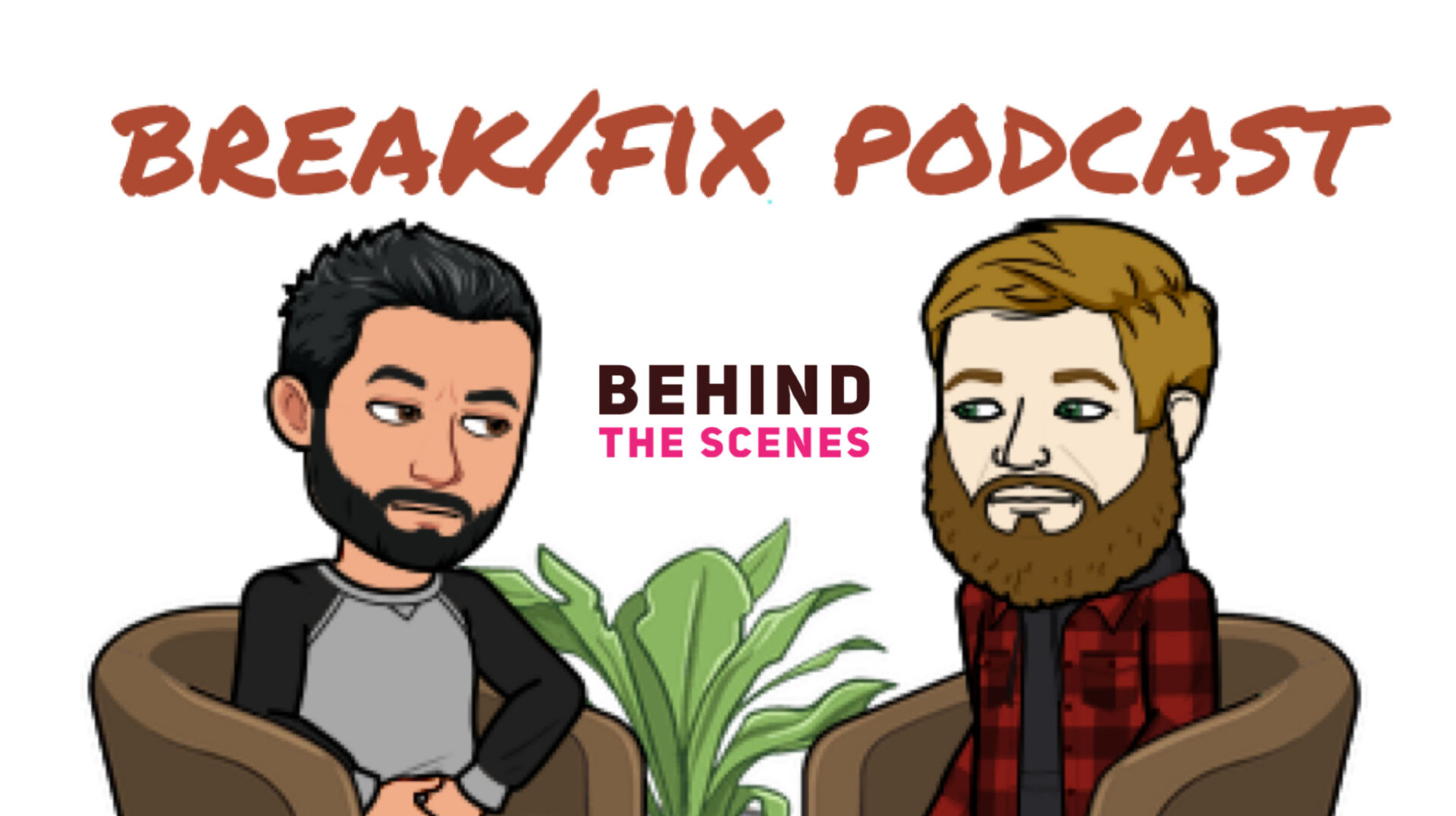
Consider becoming a GTM Patreon Supporter and get behind the scenes content and schwag!
Do you like what you've seen, heard and read? - Don't forget, GTM is fueled by volunteers and remains a no-annual-fee organization, but we still need help to pay to keep the lights on... For as little as $2.50/month you can help us keep the momentum going so we can continue to record, write, edit and broadcast your favorite content. Support GTM today! or make a One Time Donation.
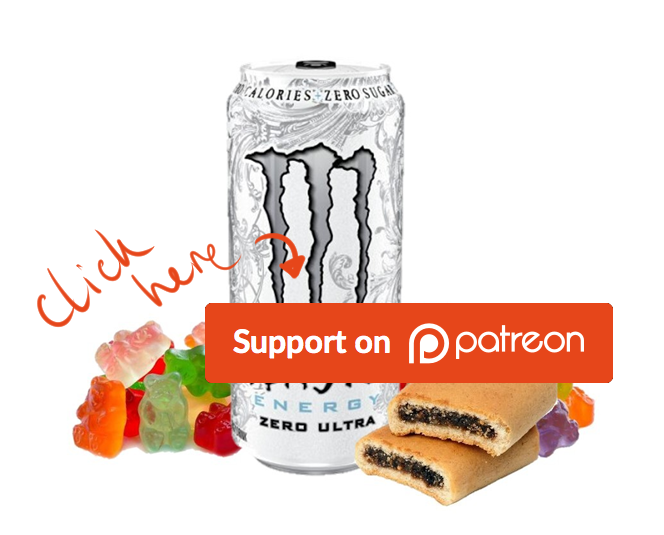
If you enjoyed this episode, please go to Apple Podcasts and leave us a review. That would help us beat the algorithms and help spread the enthusiasm to others by way of Break/Fix and GTM. Subscribe to Break/Fix using your favorite Podcast App:
 |  |  |
We have all had that feeling before. Like we are not enough, not worthy, should keep moving forward doing the norm. But what if we had the tools to better understand ourselves to not only gain a new perspective, but also learn what you actually want and how to get there.












In Bryce’s new book, Geared for Life: Making the Shift Into Your Full Potential he shares stories of winning, losing, and learning to fail forward from the perspective of a professional Monster Truck driver to help others understand that we are so much more than we allow ourselves to believe.
To learn more be sure to visit www.brycekenny.com or follow him on social @warriorbryce on Facebook, Instagram and Tiktok, or stop over and visit his YouTube channel @brycekenny
Bryce Kenny has received the following notable endorsements for his work
Dennis Anderson, Driver & Creator of the Grave Digger Monster Jam Truck, Monster Jam Hall of Fame Inductee, and 4X World Finals Champion.“
The success of our Grave Digger team over the last 40+ years isn’t the result of luck or skill. We fought with everything we had for years to keep the dream alive. We learned. We failed. We won. We lost. But we always seemed to find another gear we never knew we had to move forward. That’s what Geared for Life will equip you to do. Bryce’s perspective is dead on in this book.”
John Force, 16-time NHRA champion, Owner and CEO of John Force Racing.
“There is no secret formula to success in motorsports or in anything really. It takes heart, patience, getting the right people around you, and maybe being a little stubborn when you’re chasing your dream. This book, Geared for Life, will help you get that mindset and help you make those moves.”
A featured commentator on FOX Sports, NBC Sports, and Discovery Channel
Guest Co-Host: Daniel Stauffer
In case you missed it... be sure to check out the Break/Fix episode with our co-host. |  |  |


